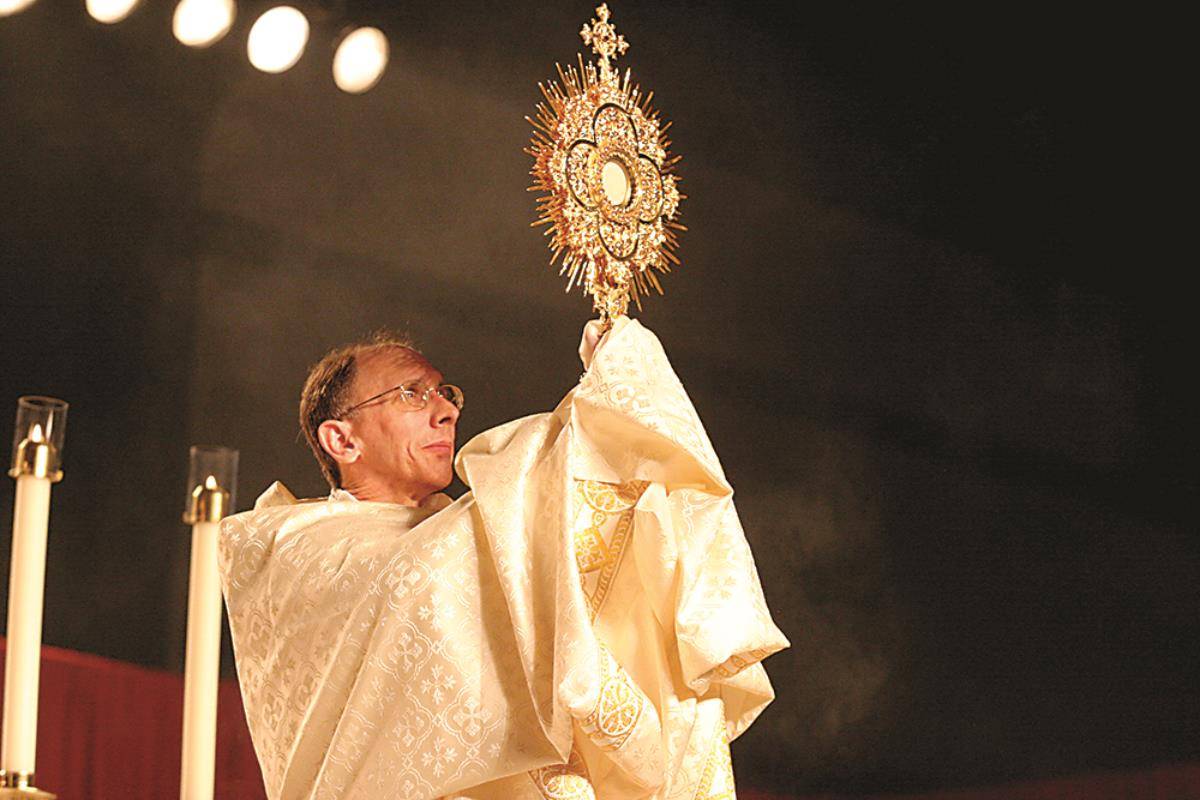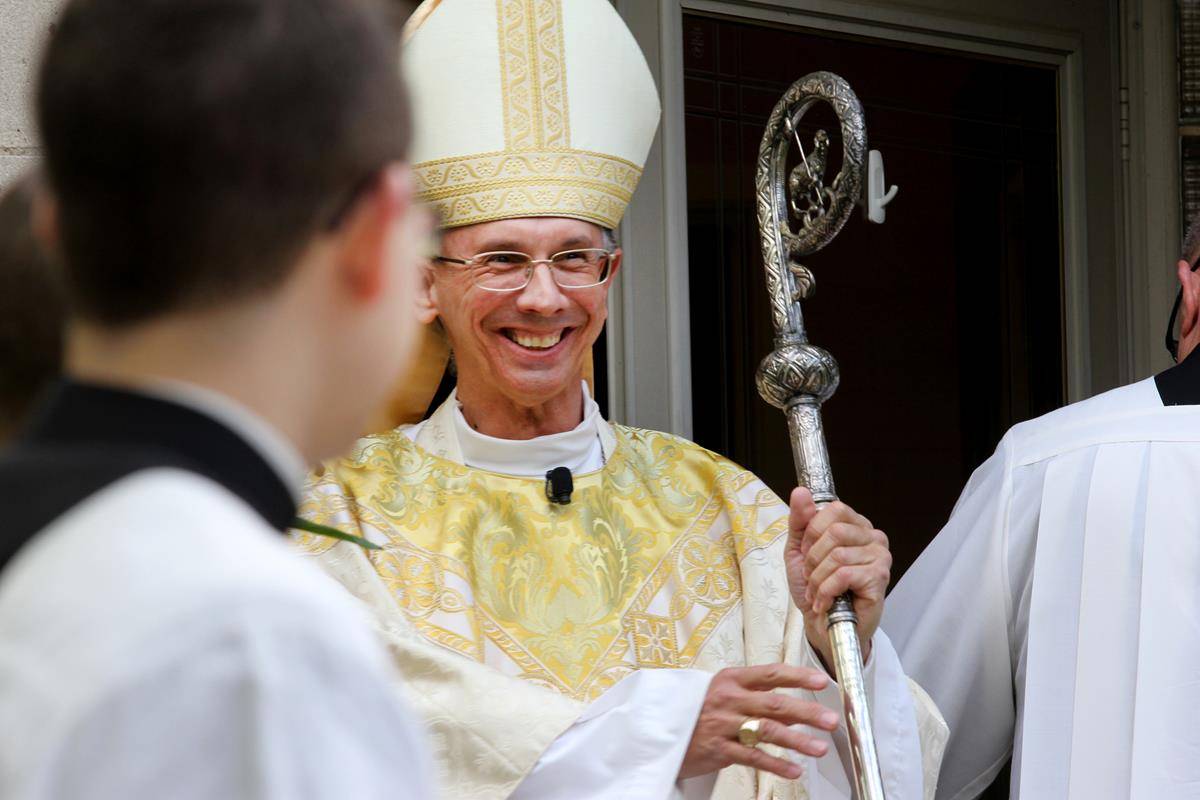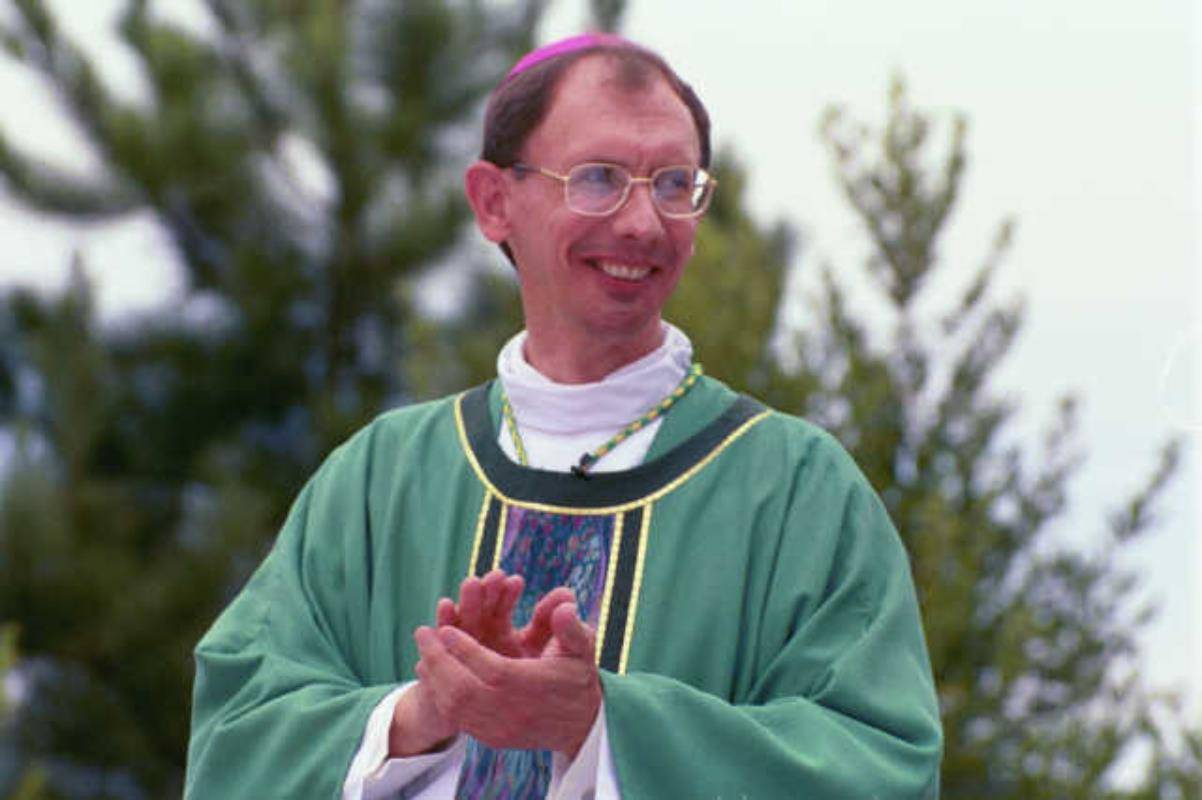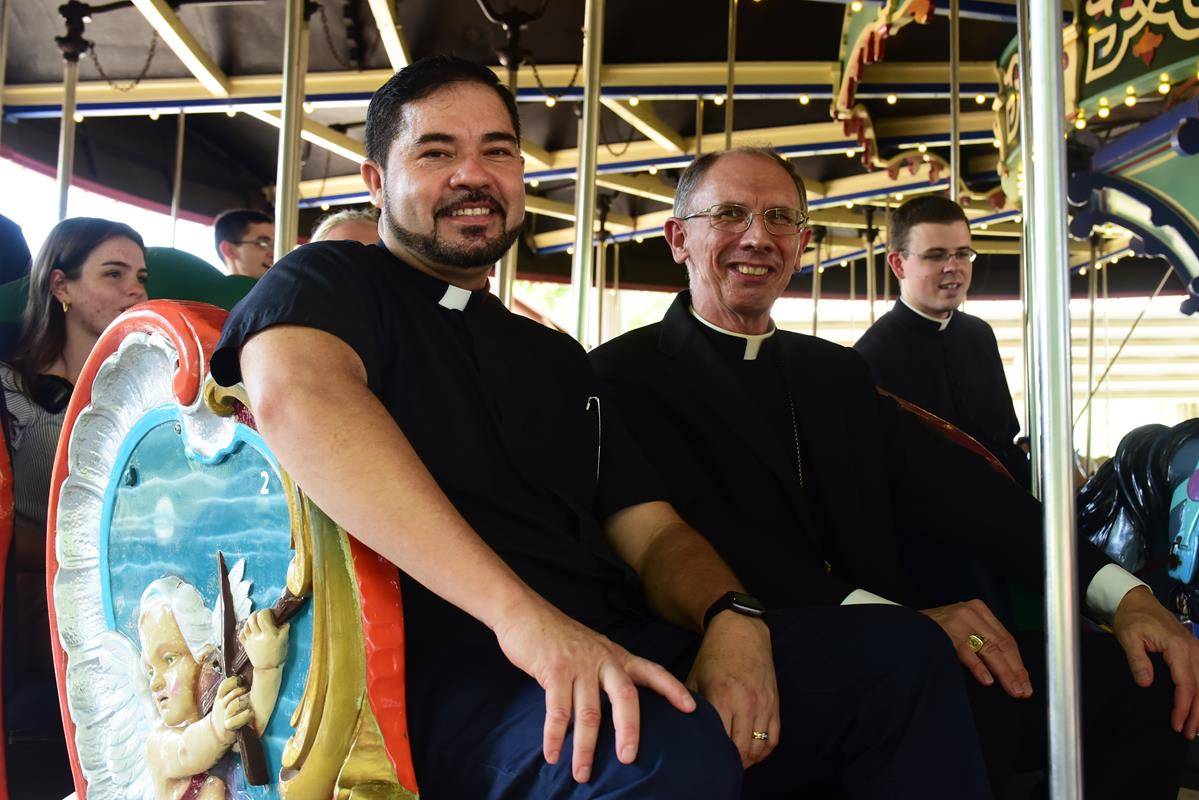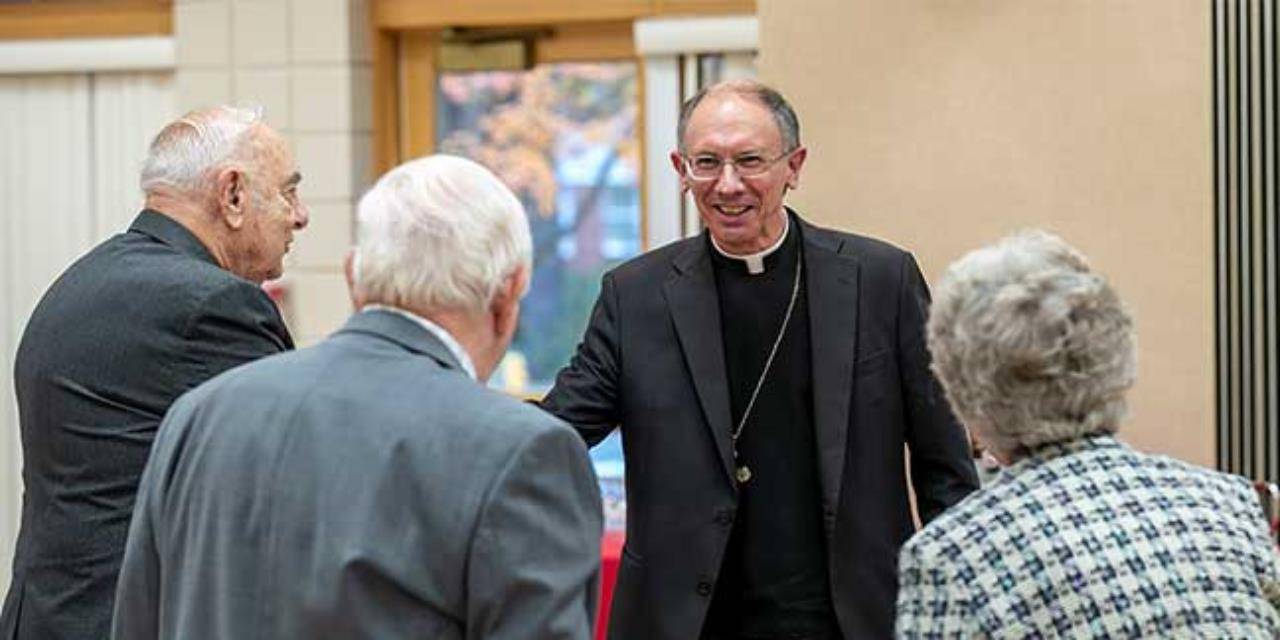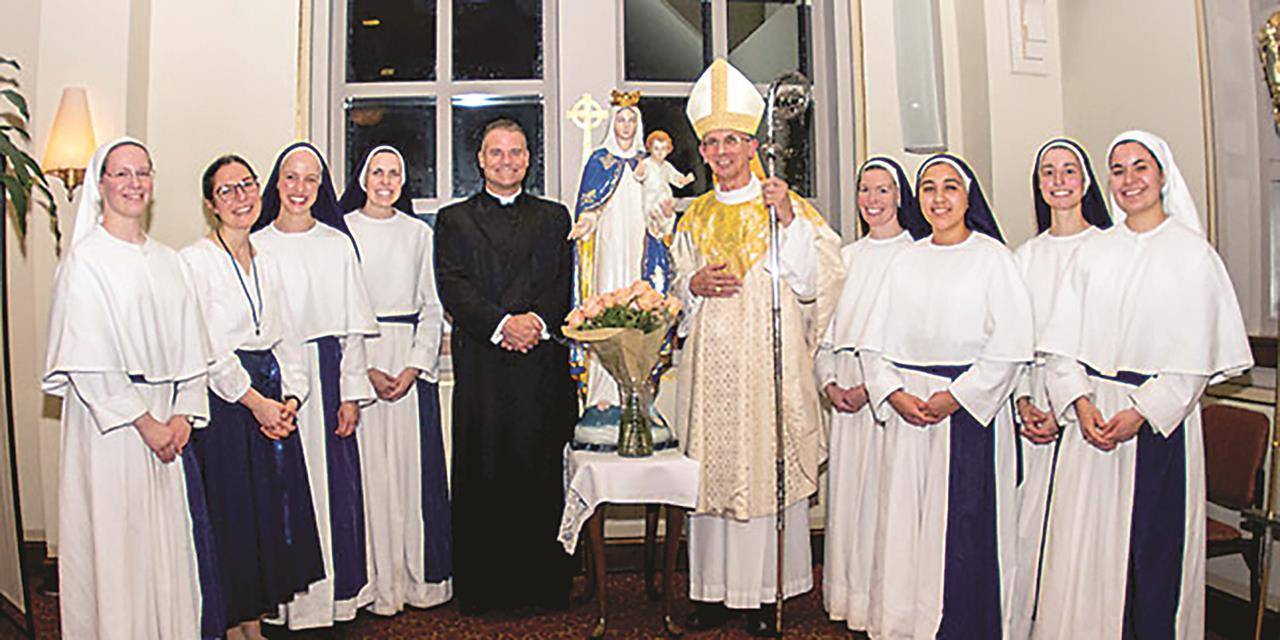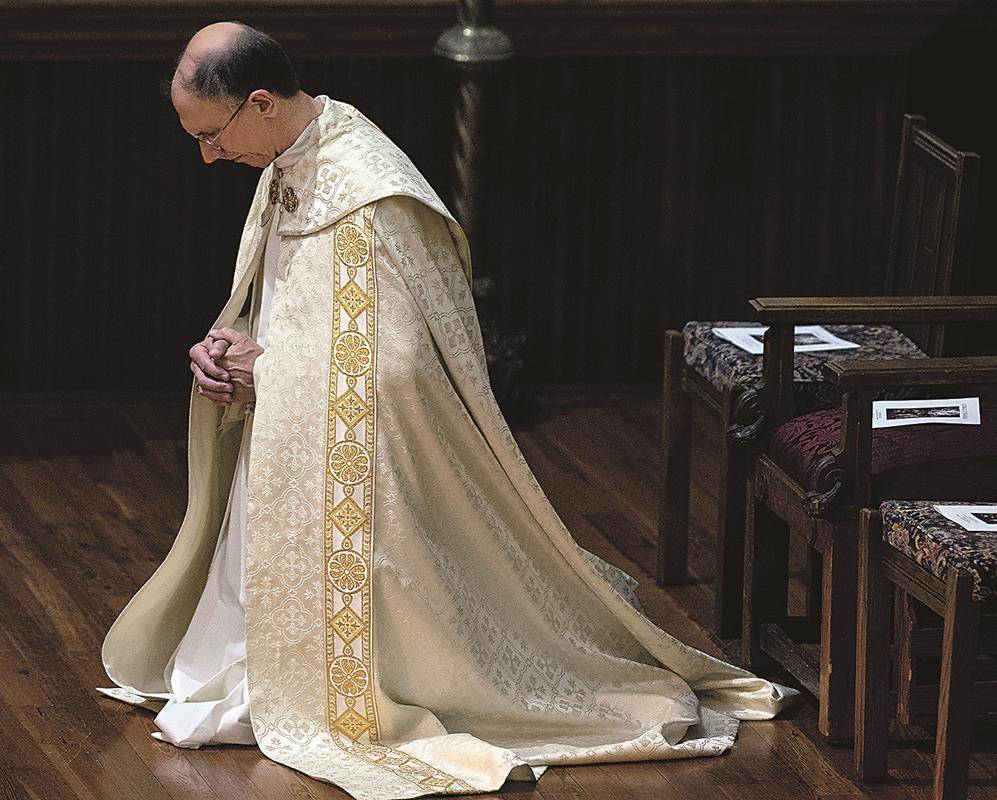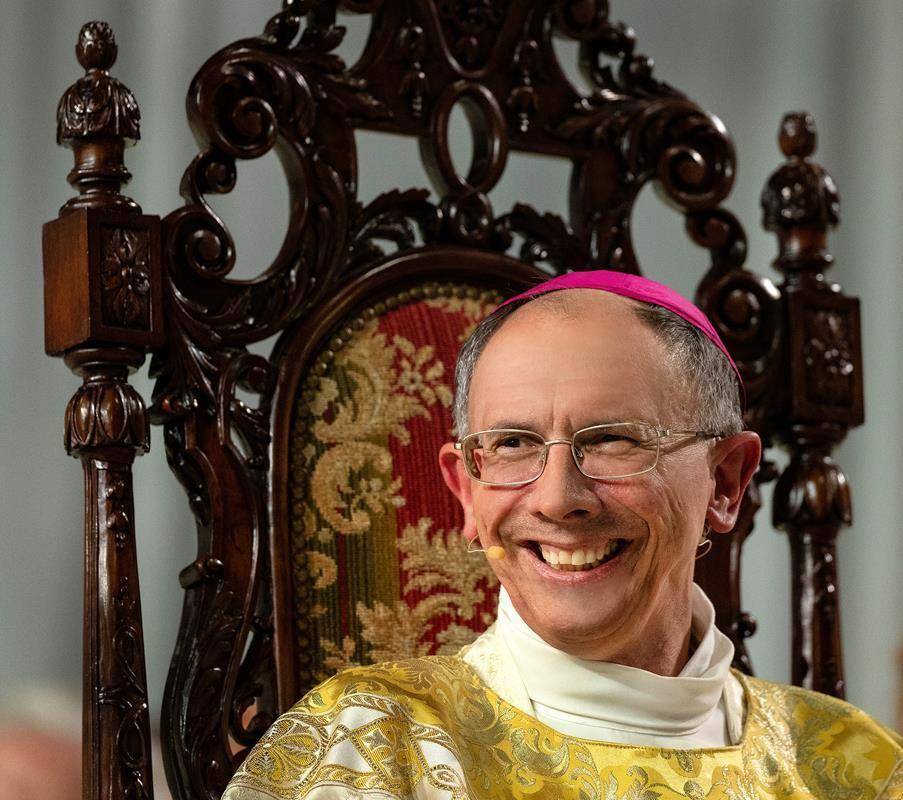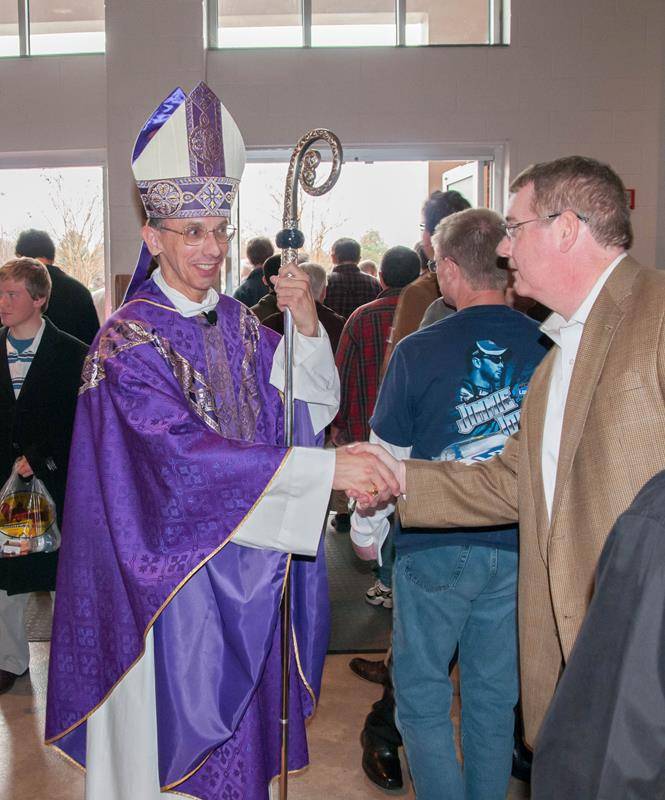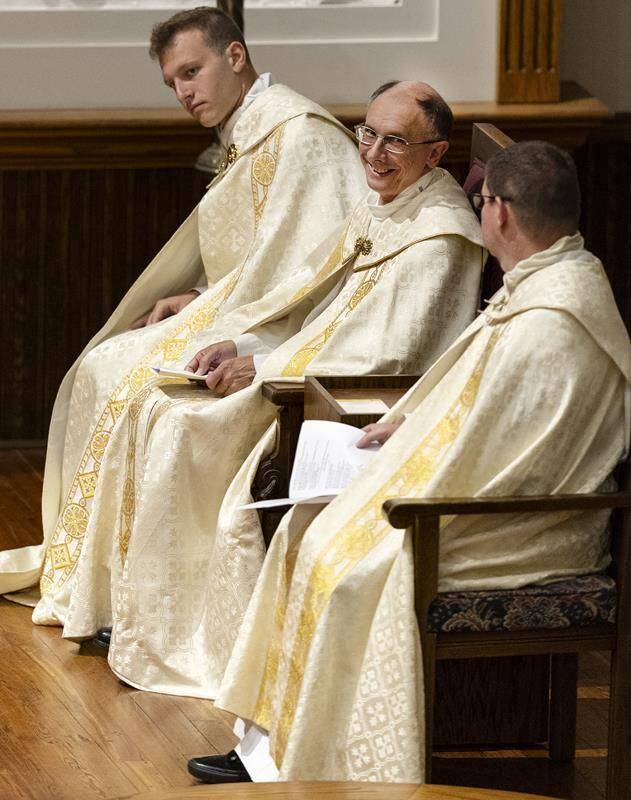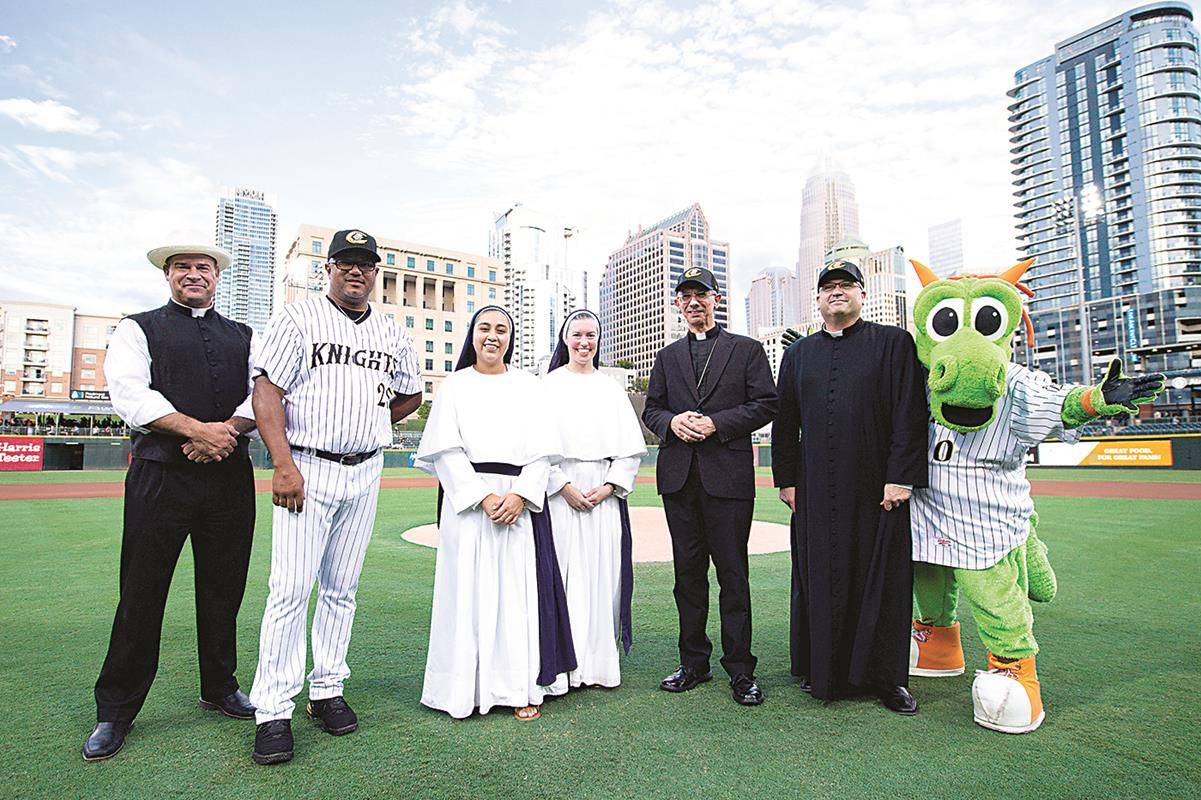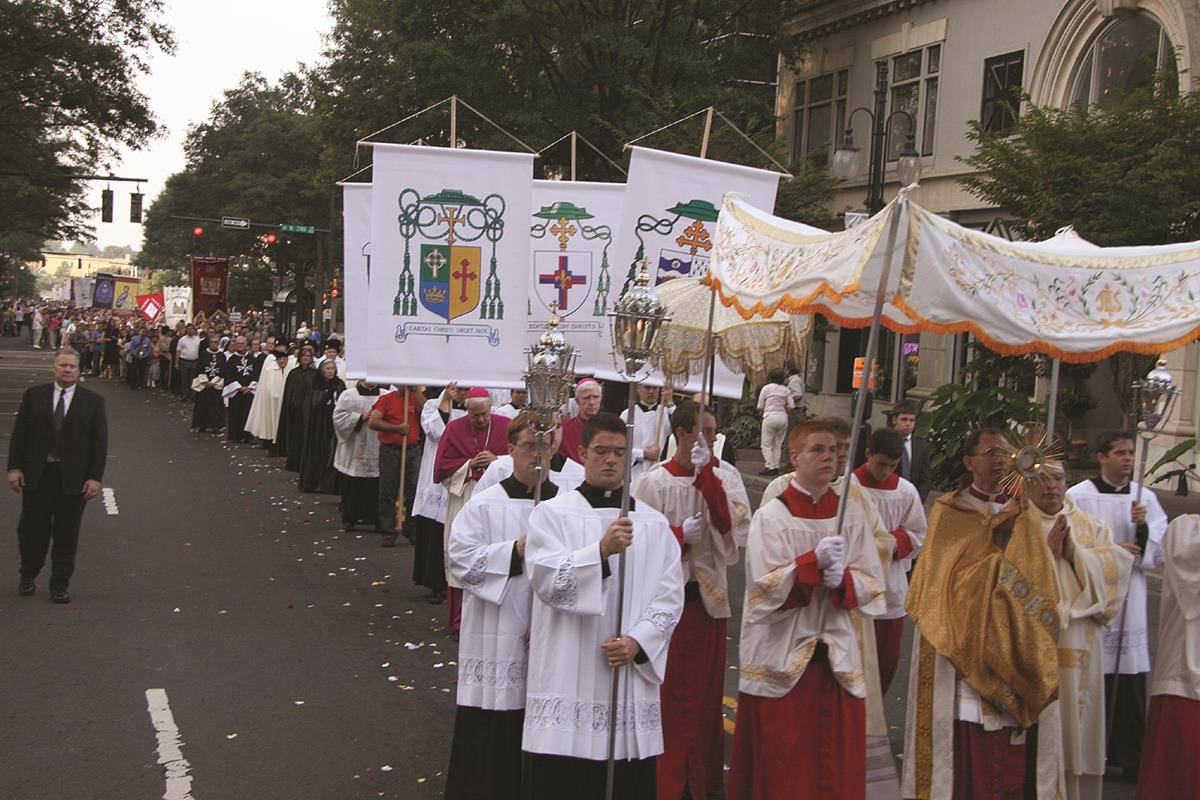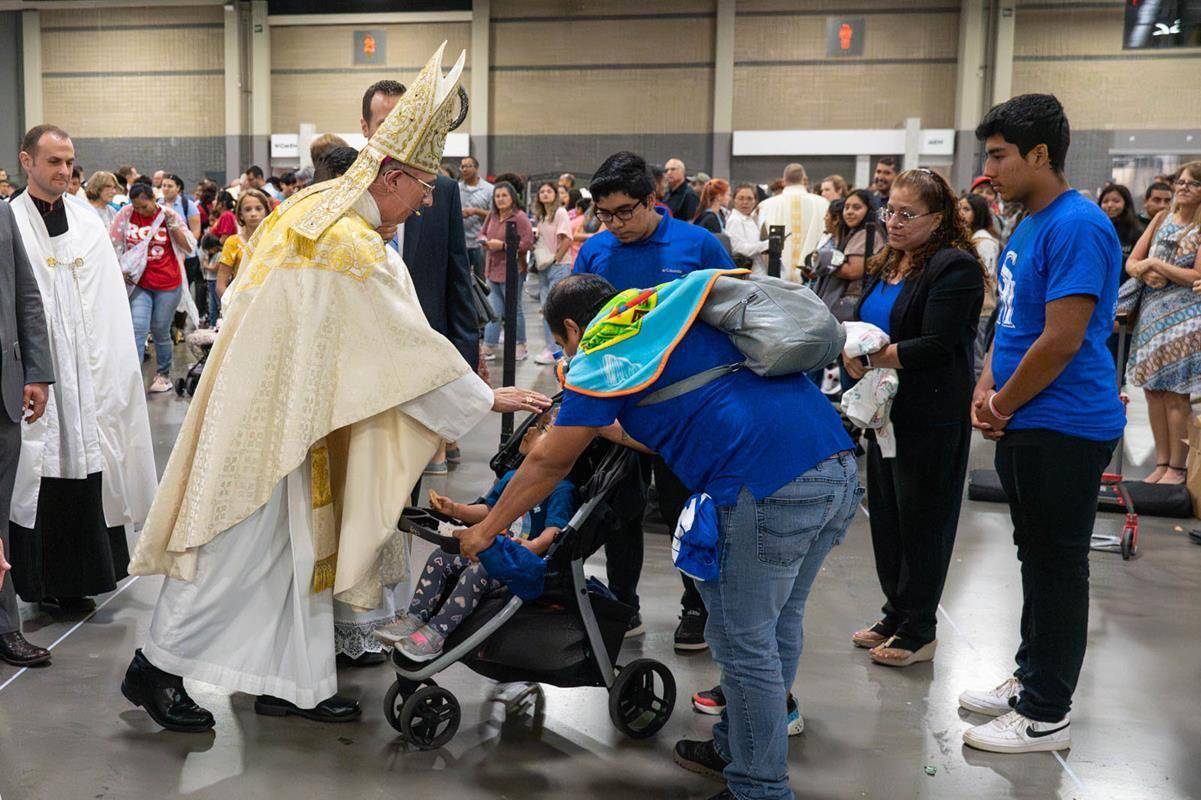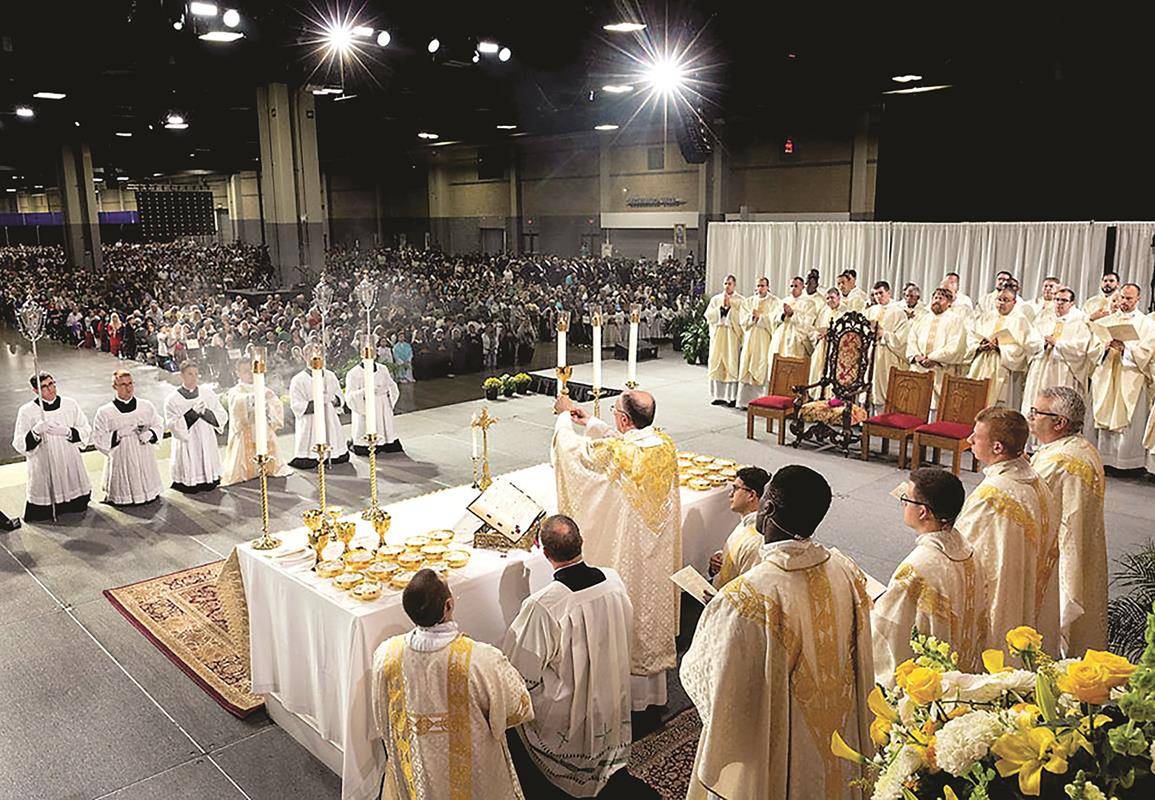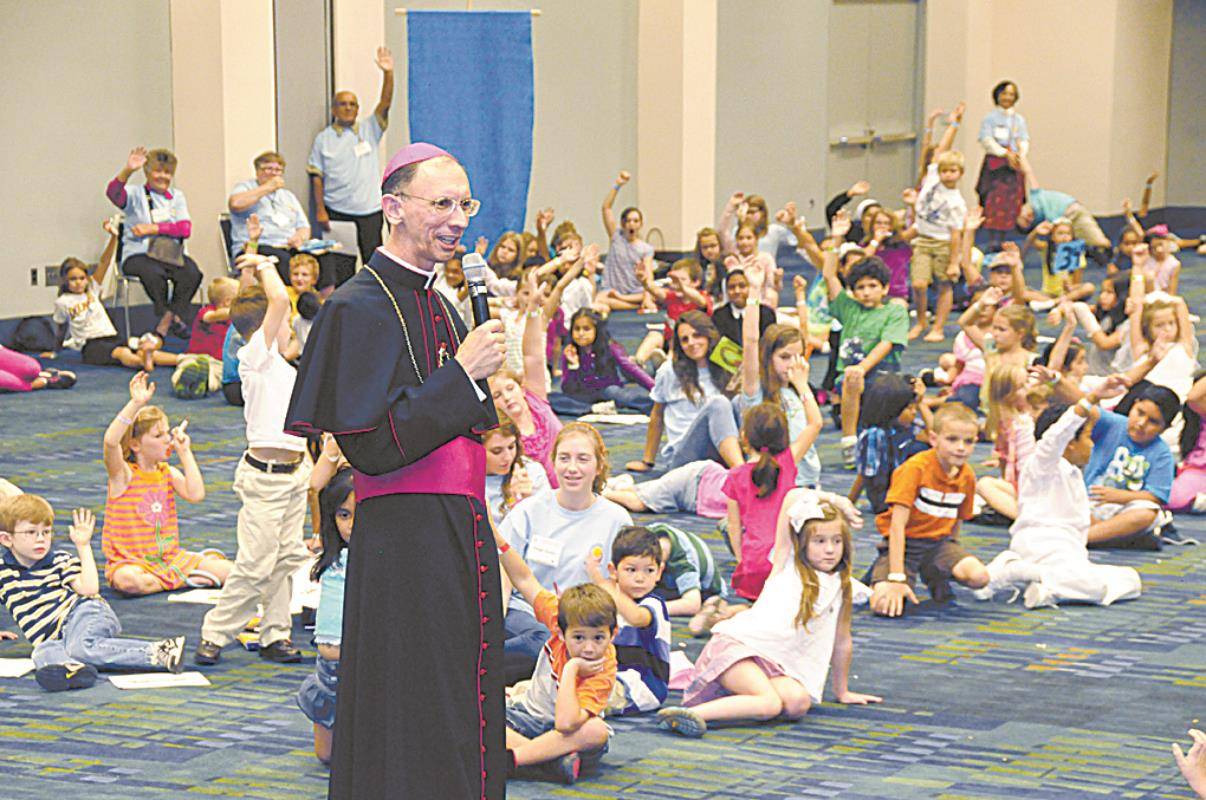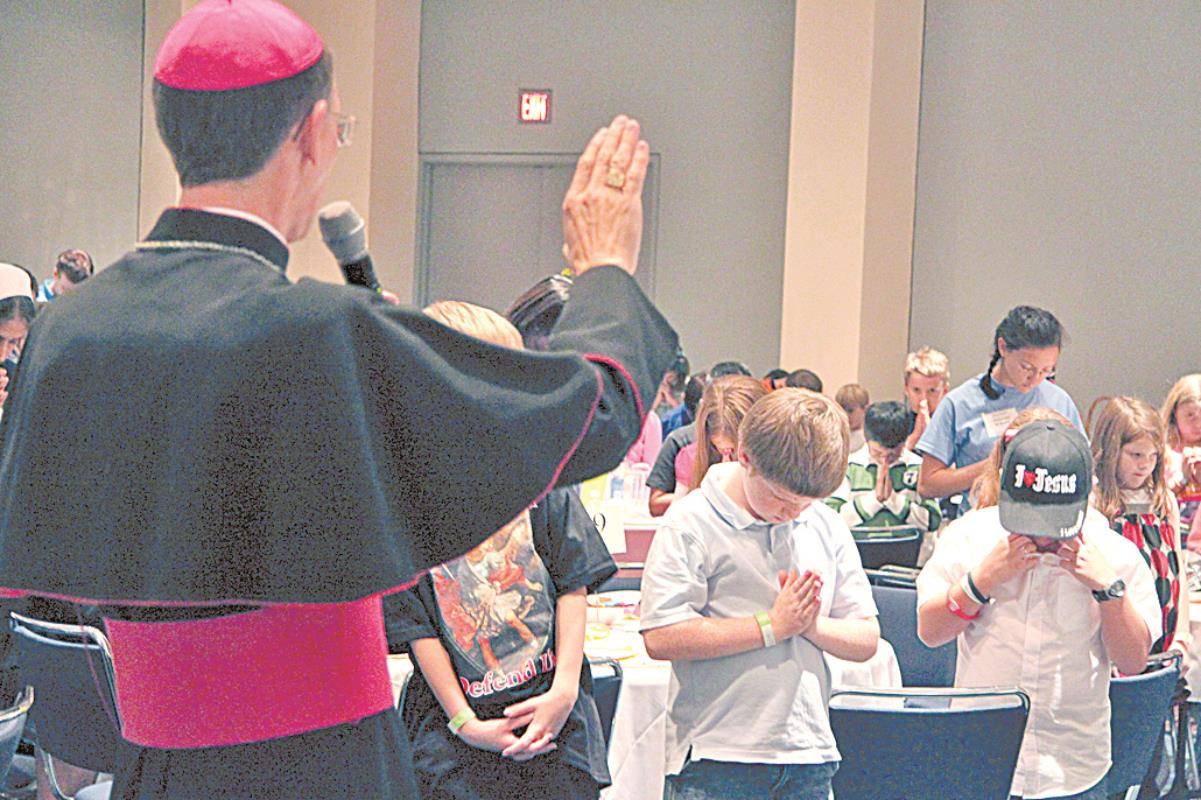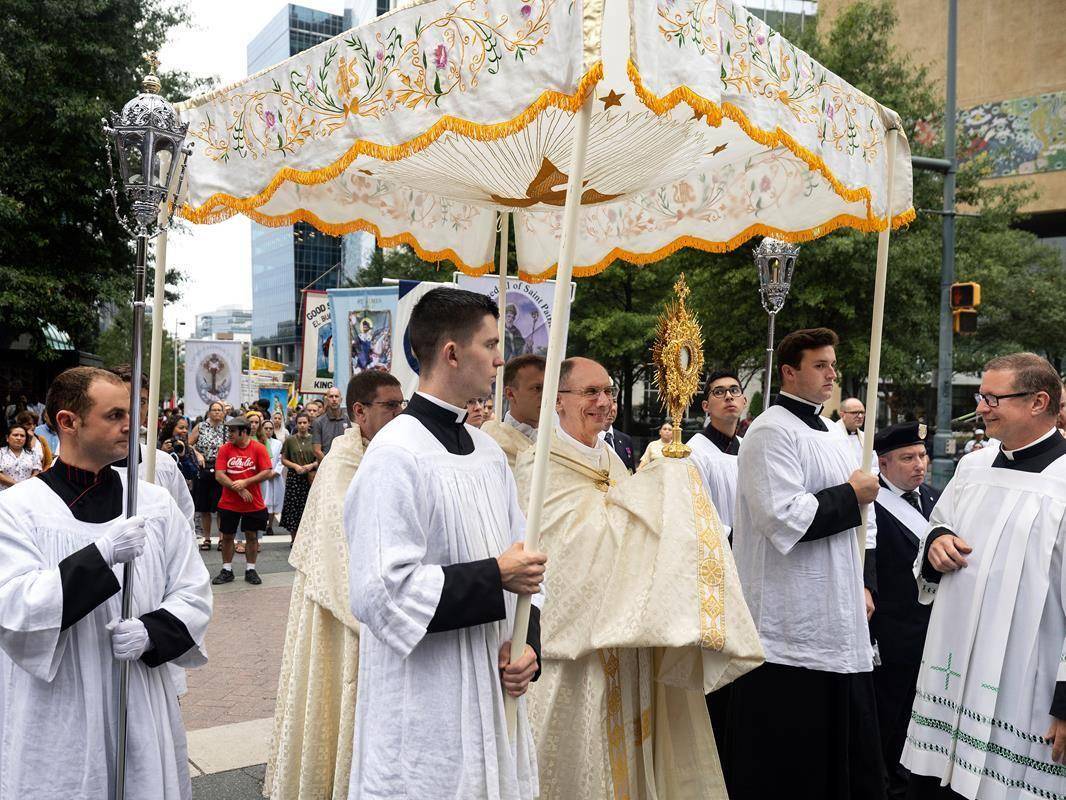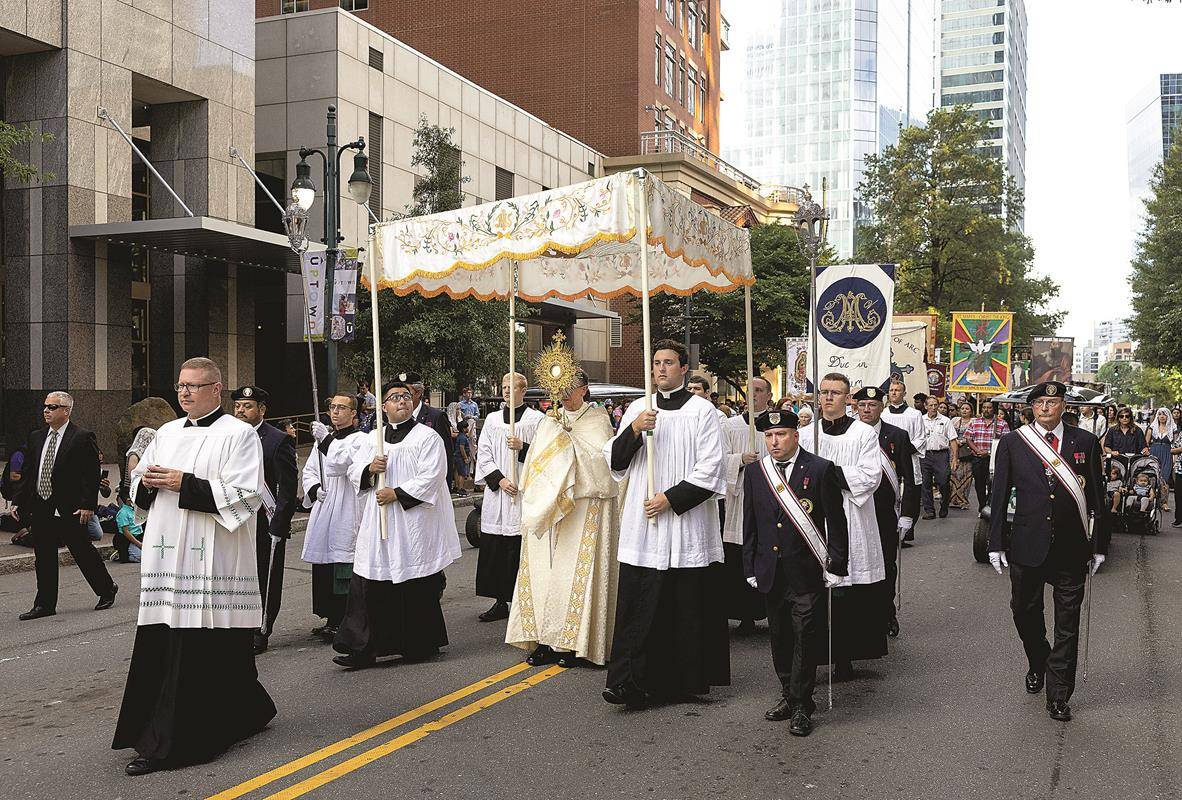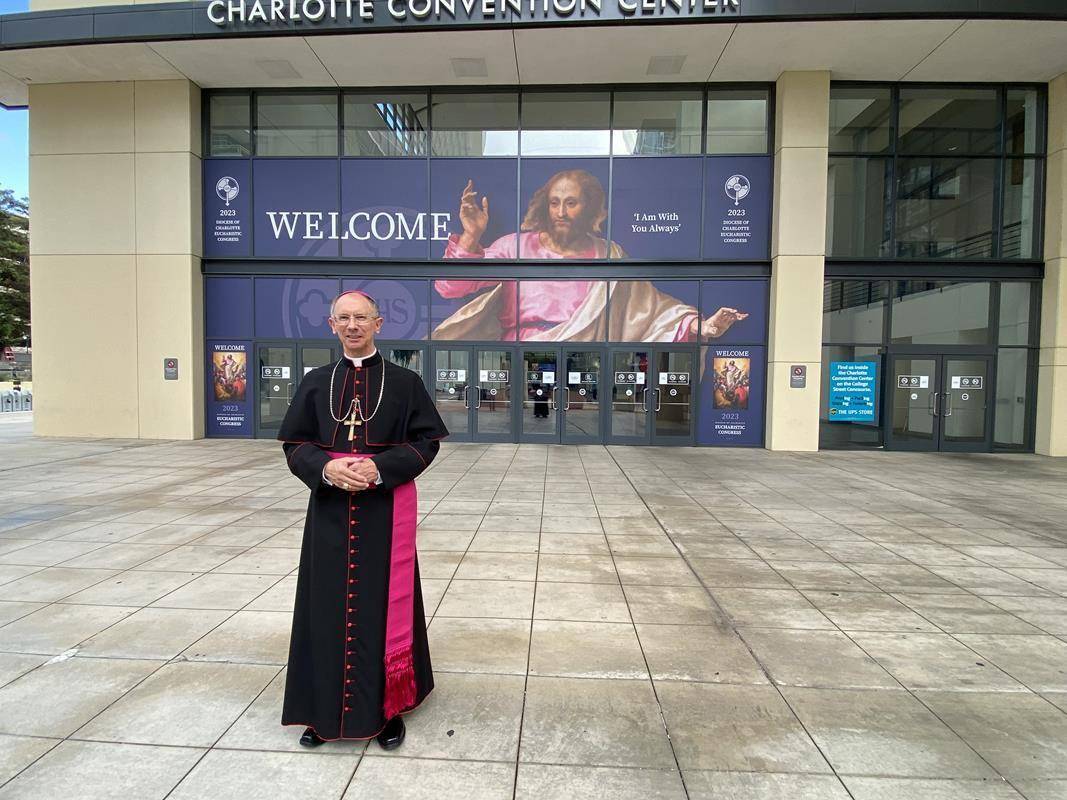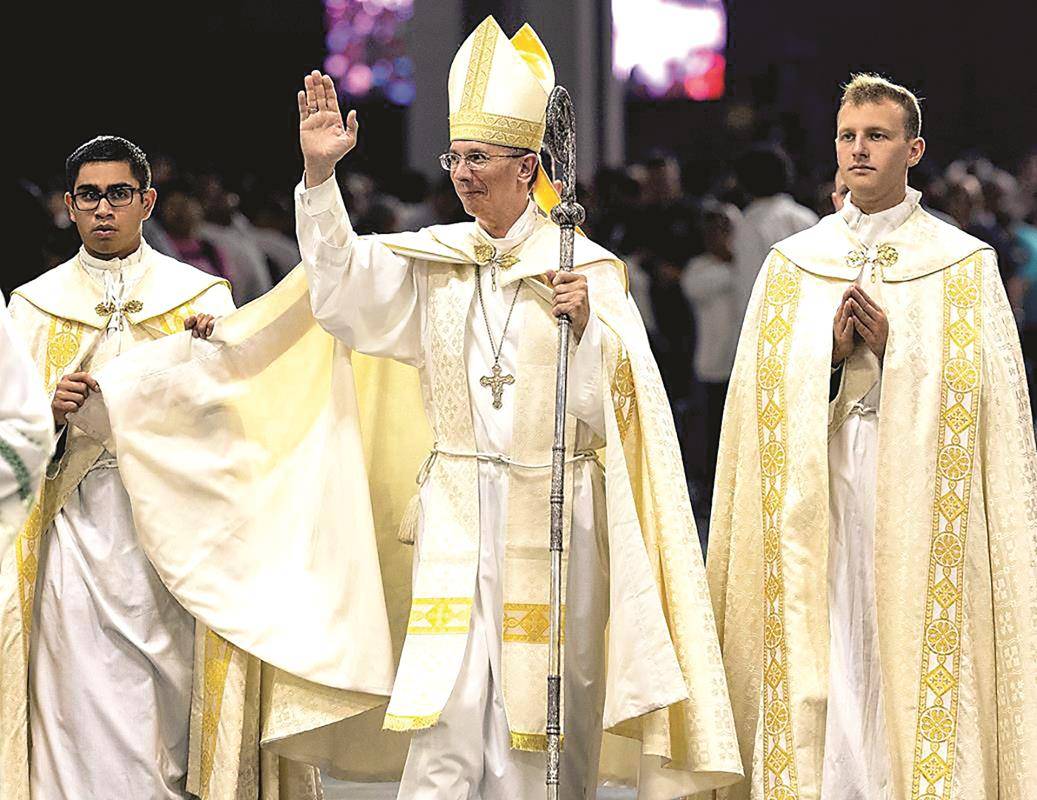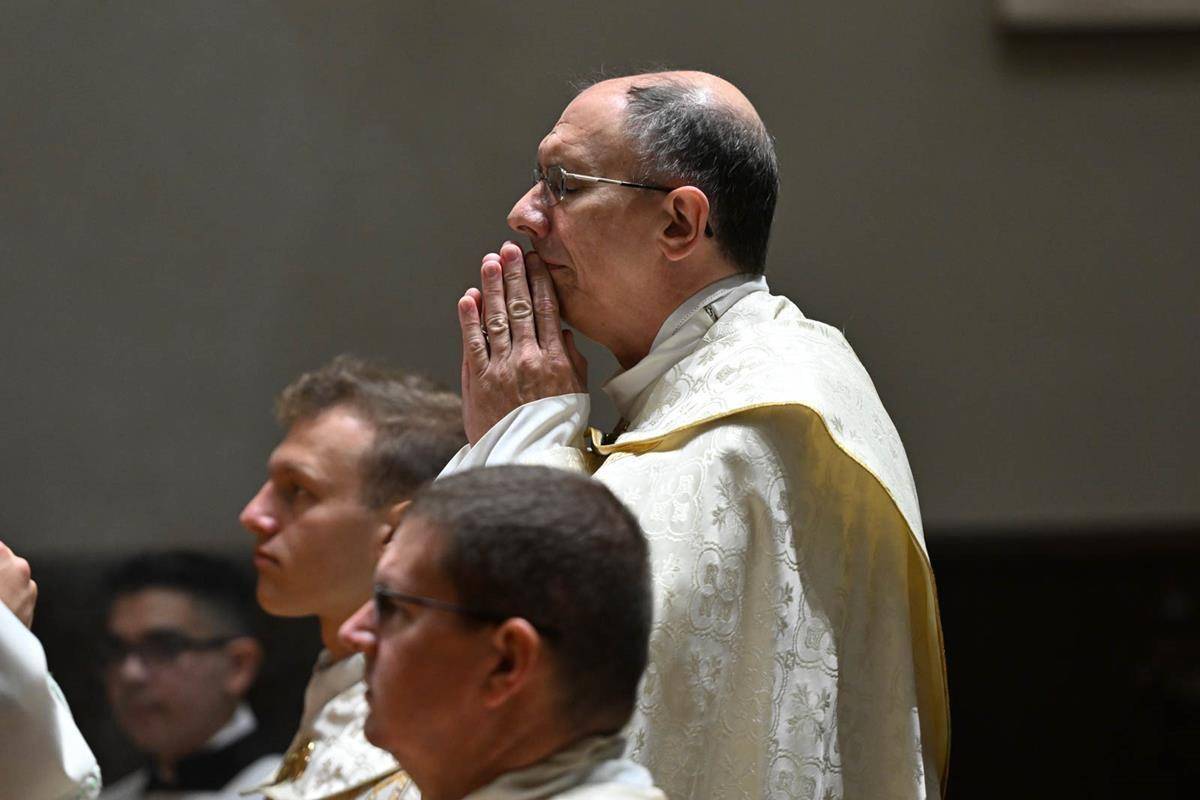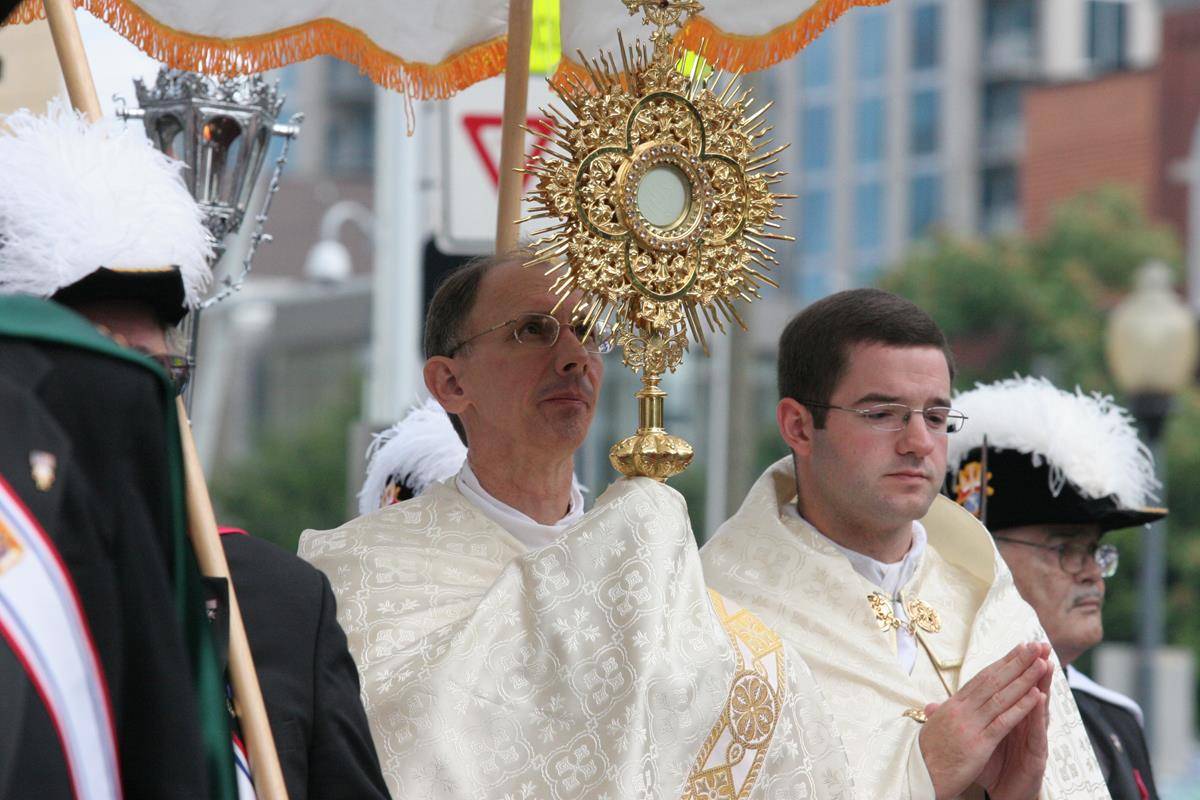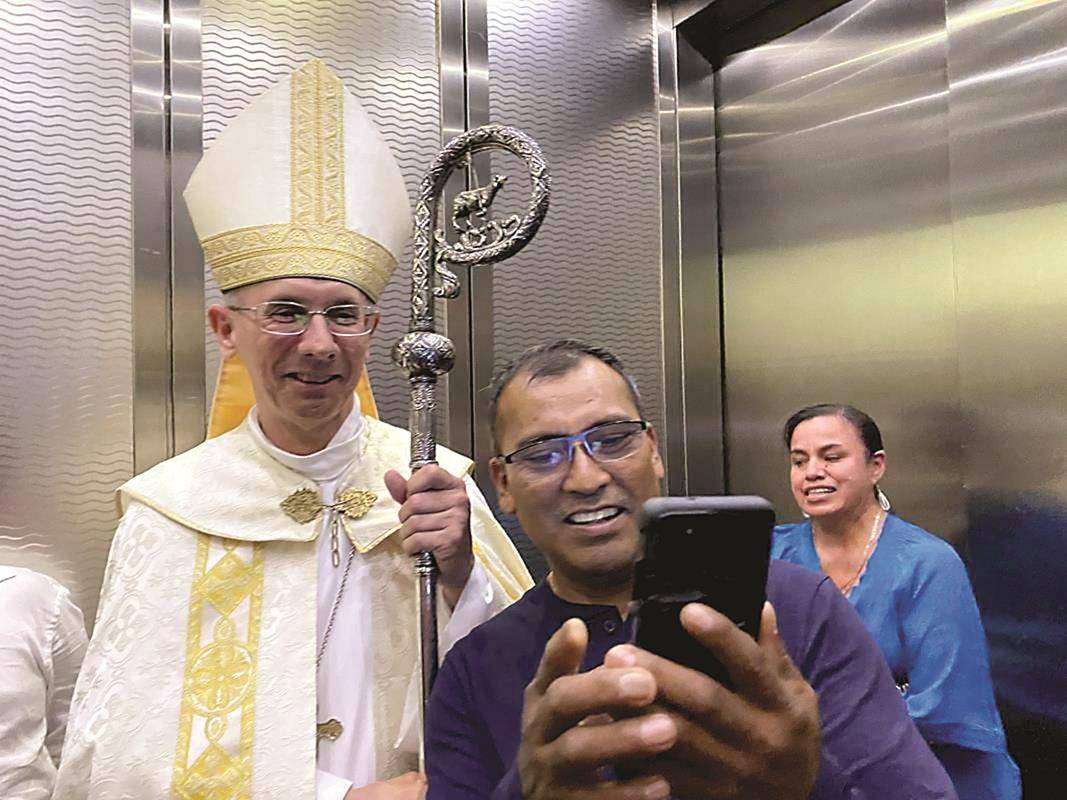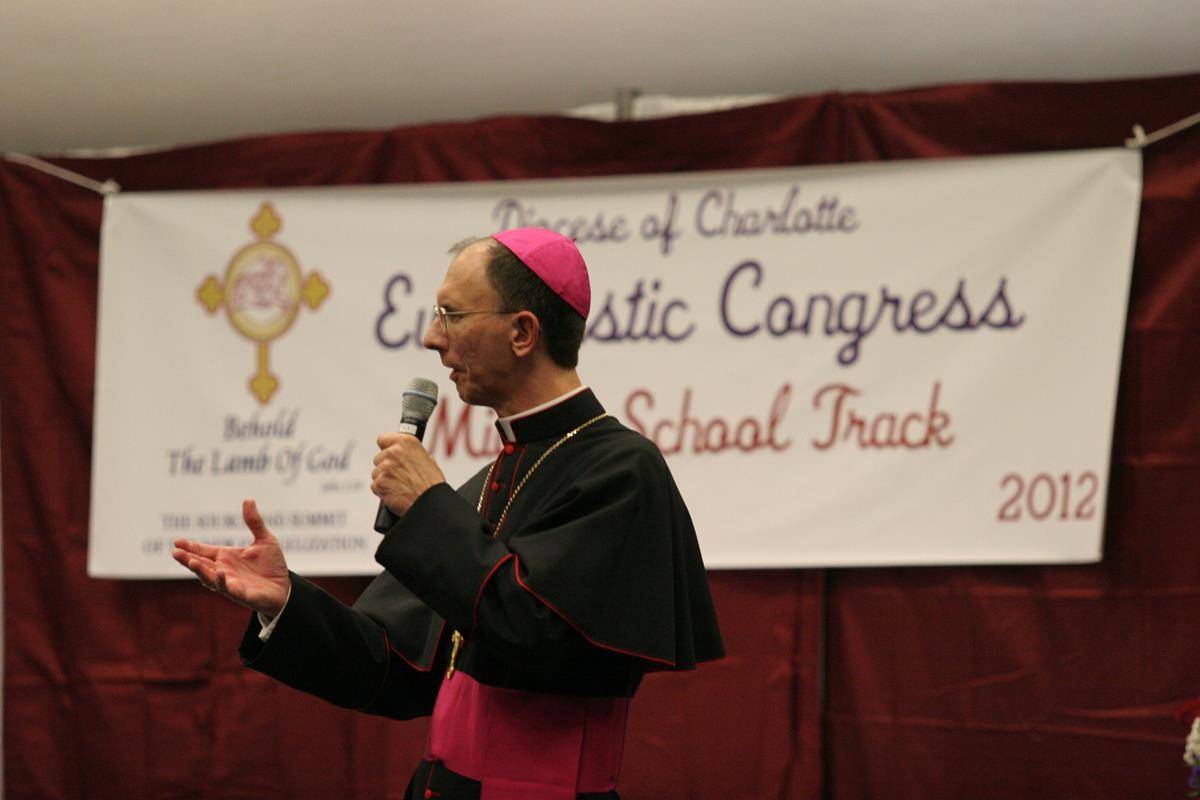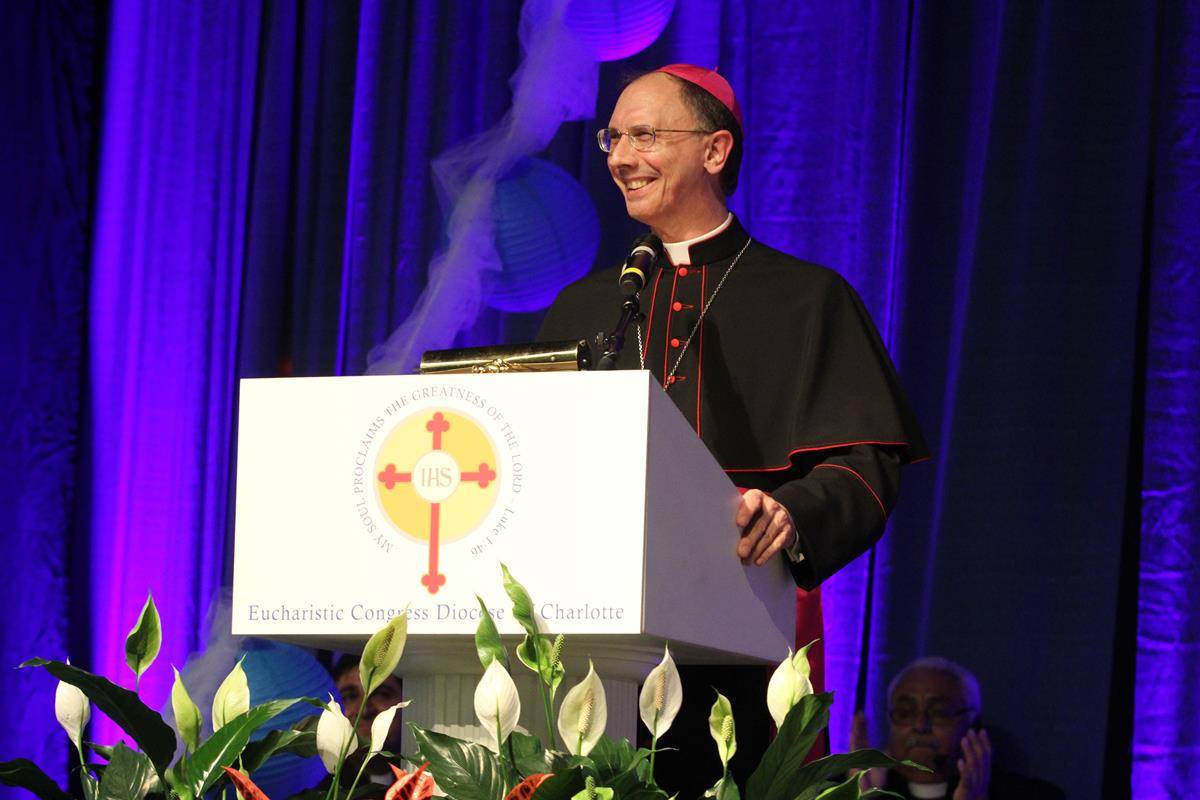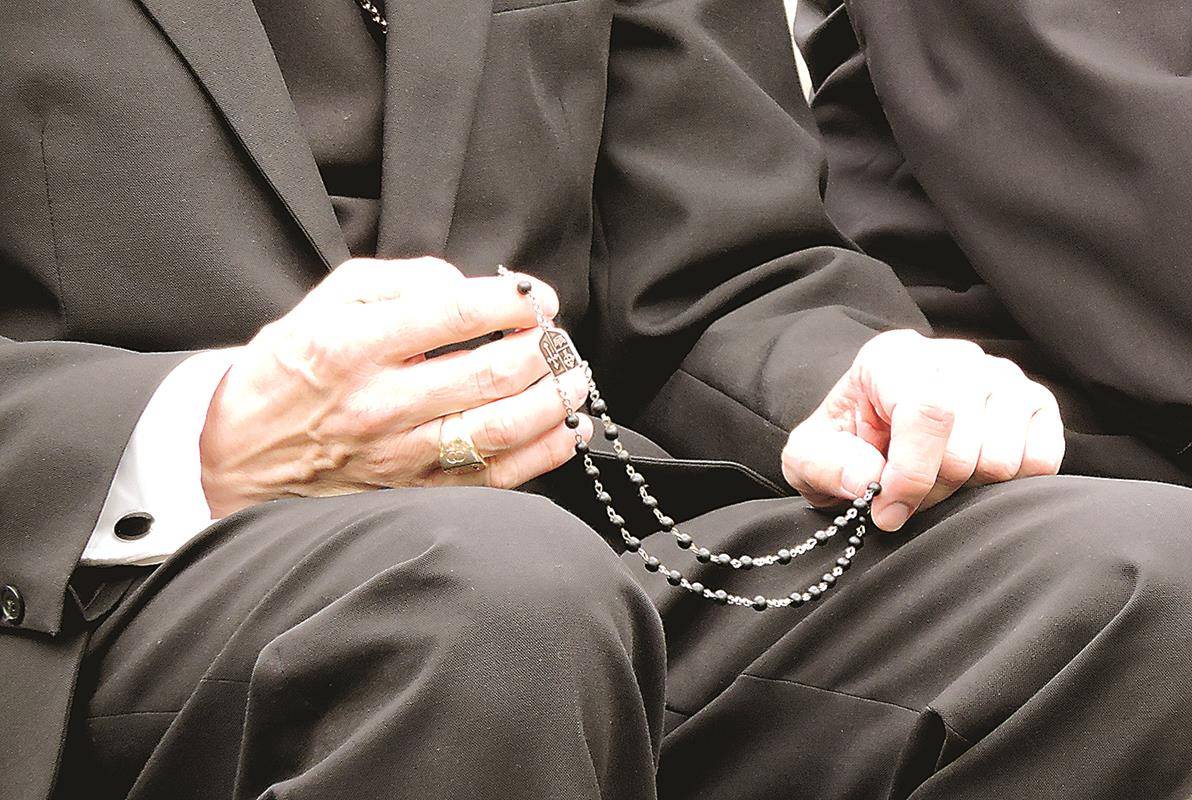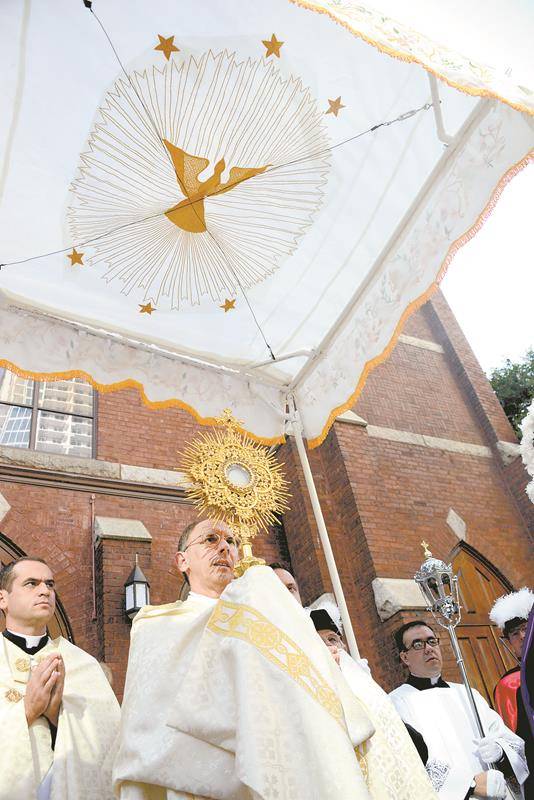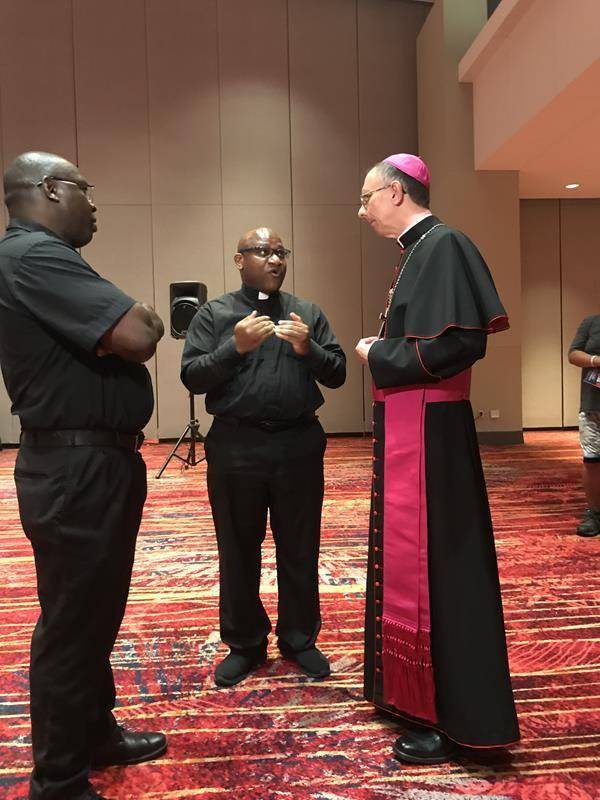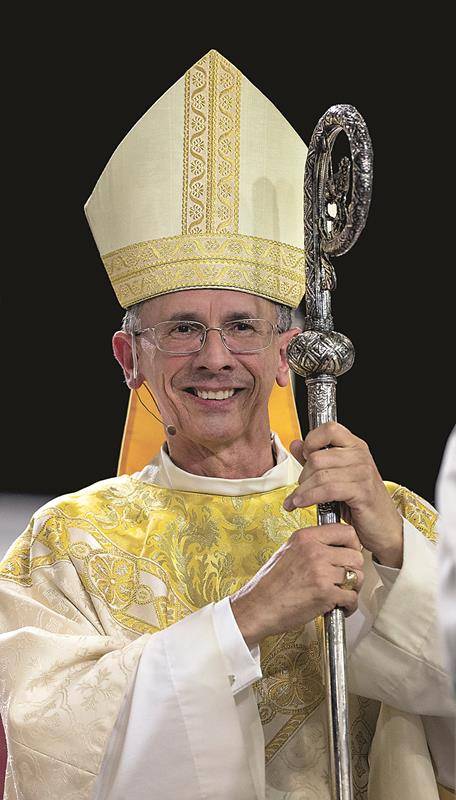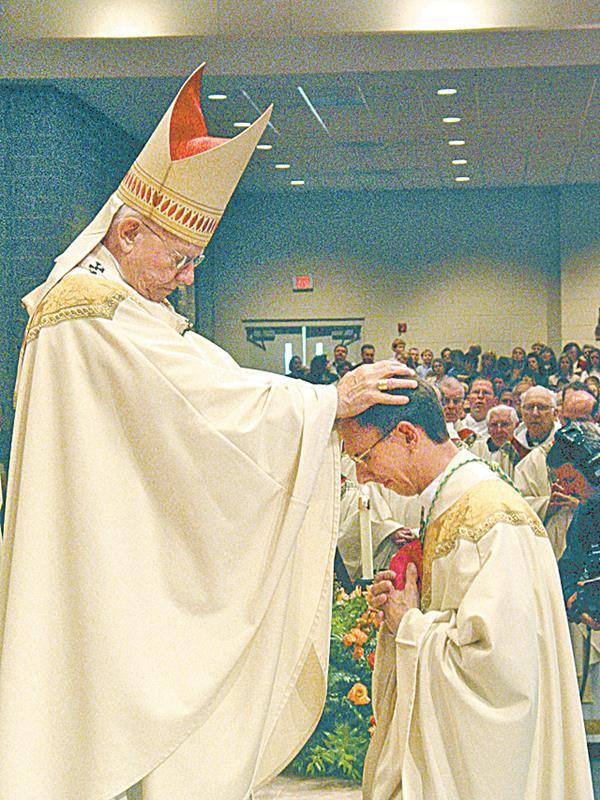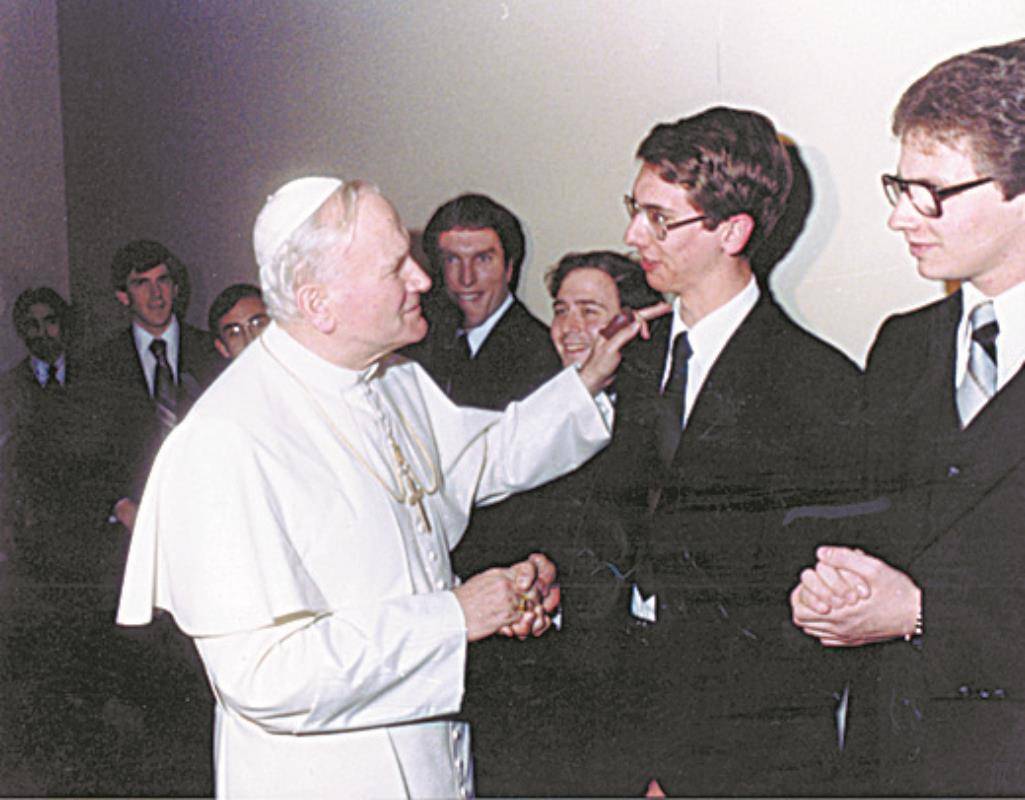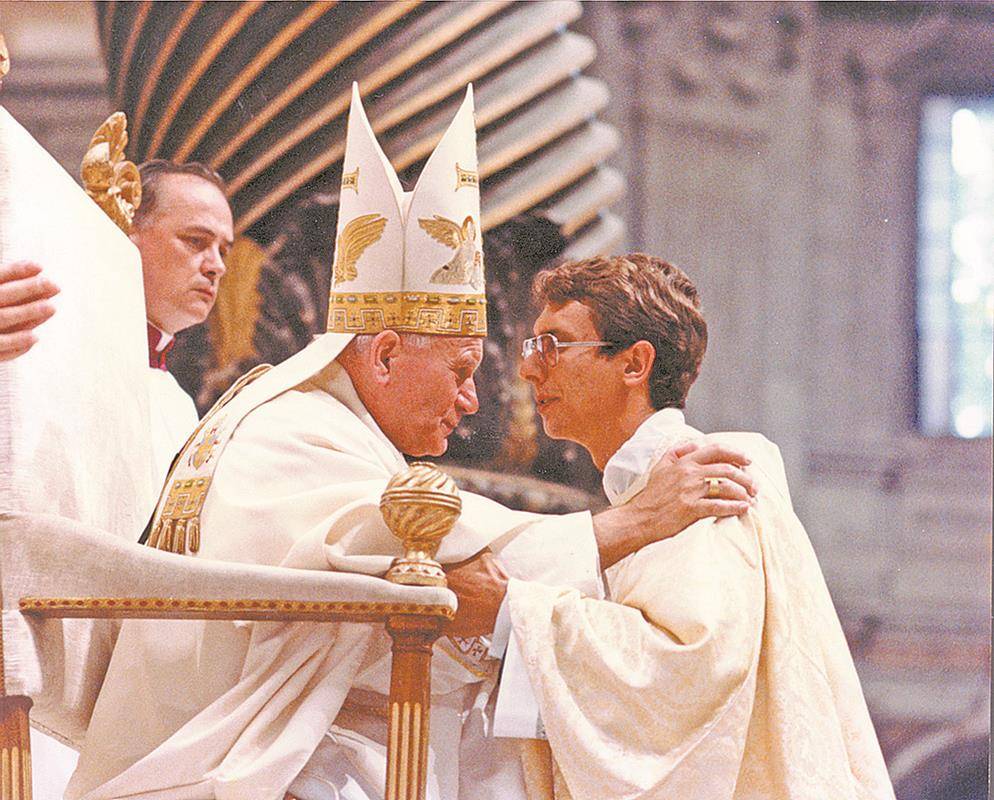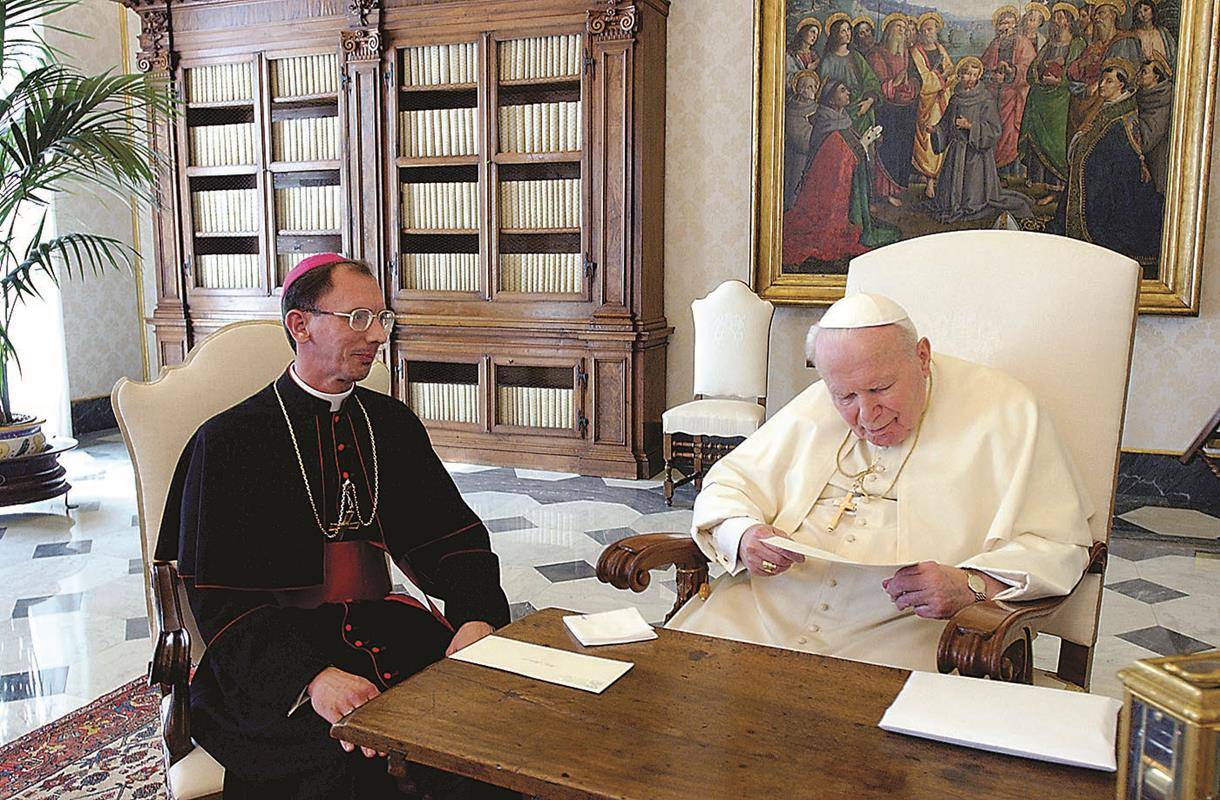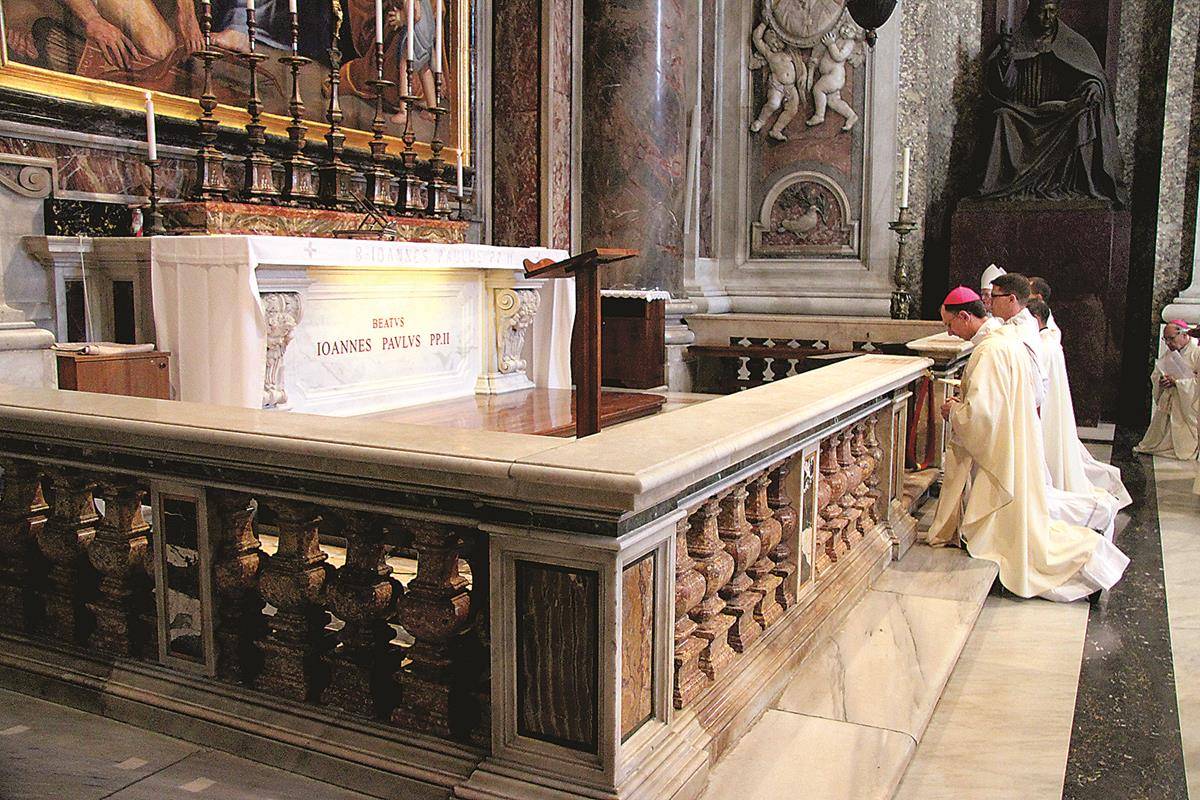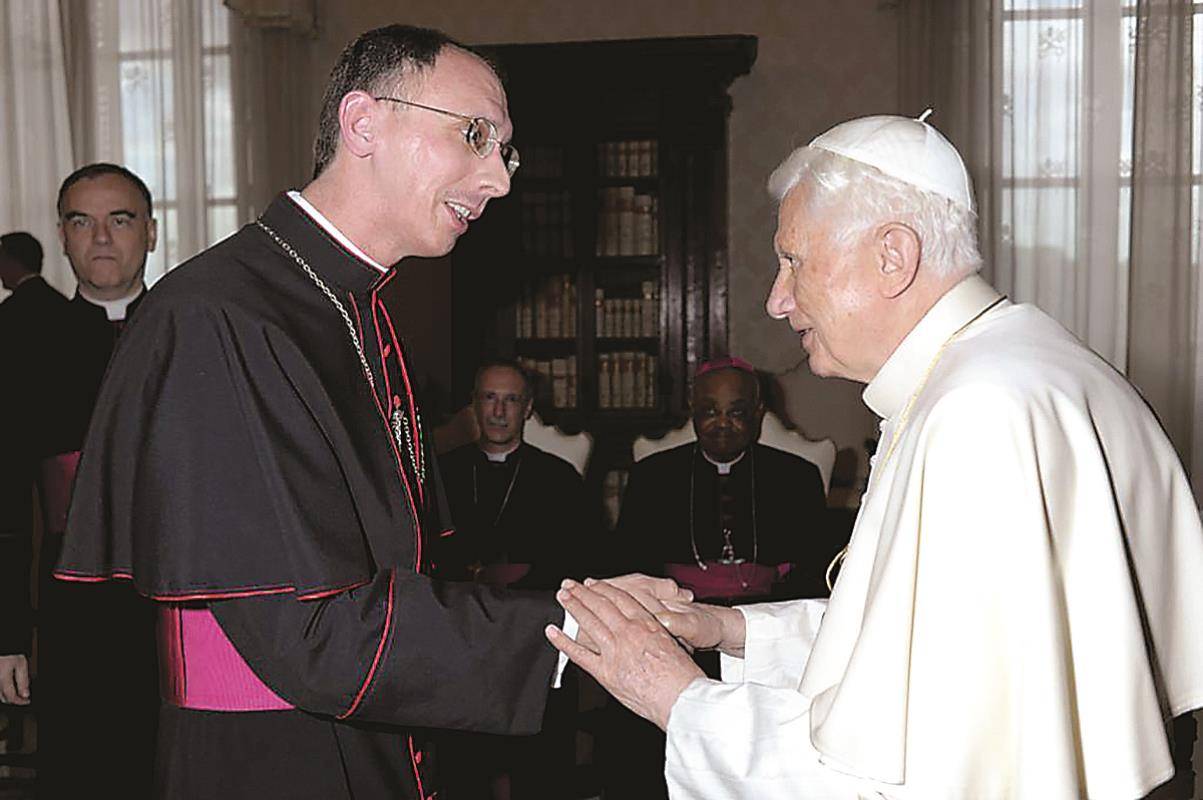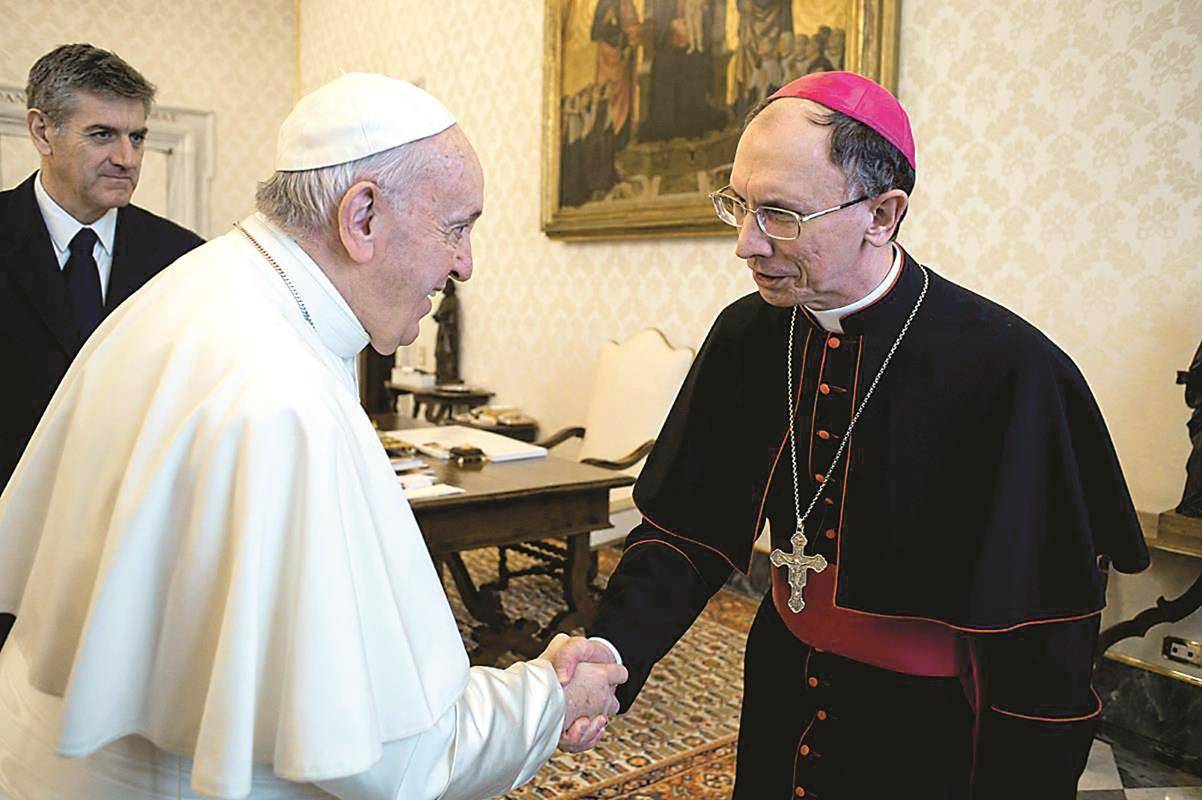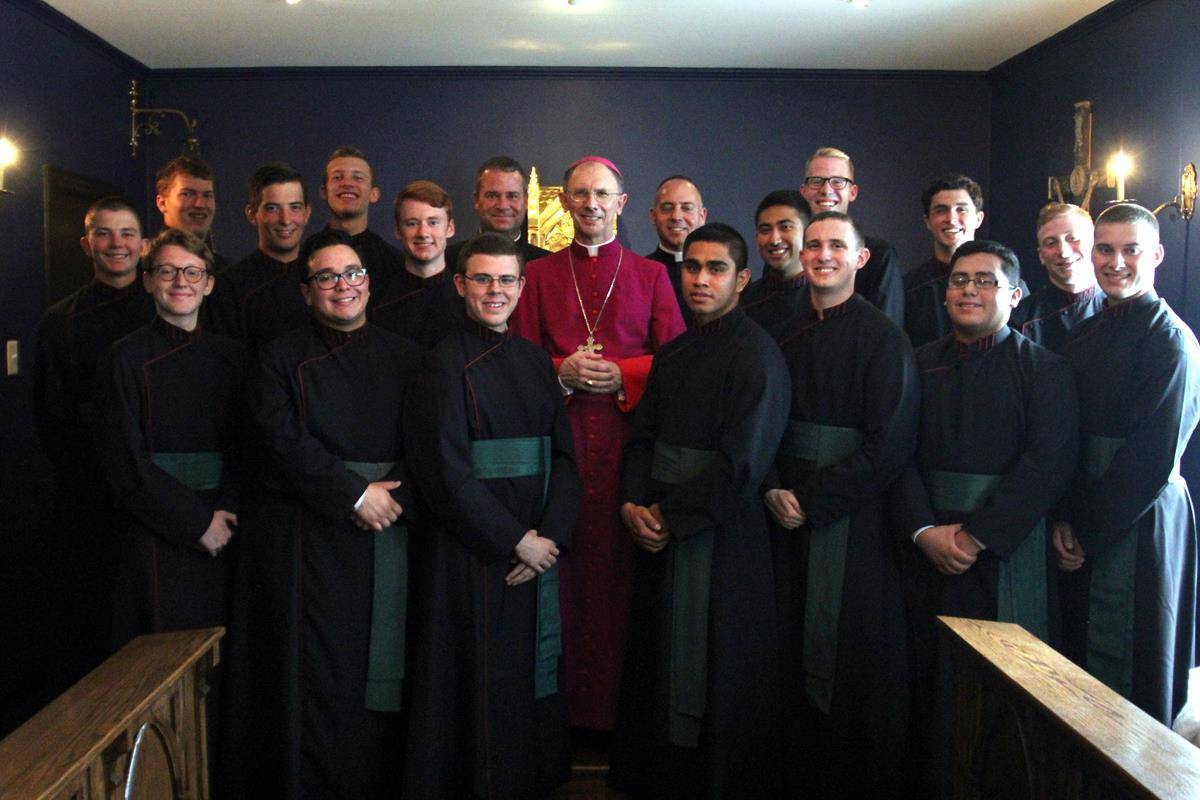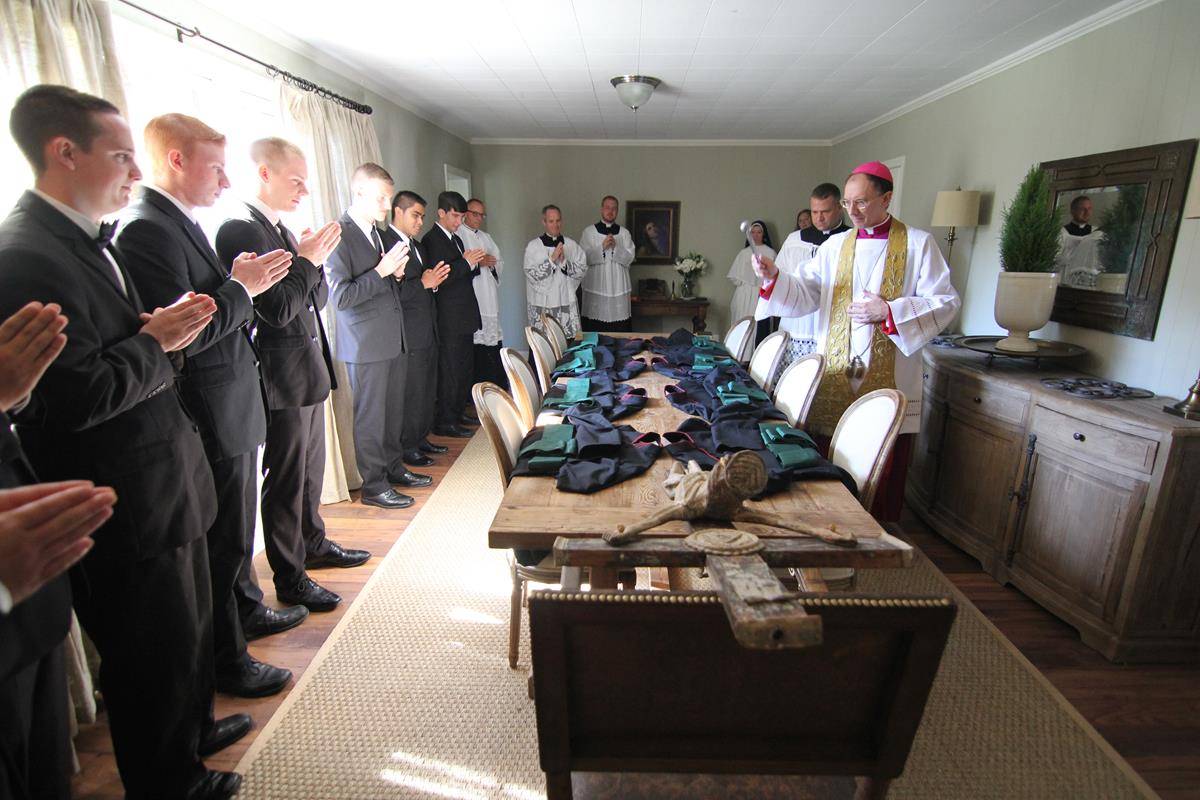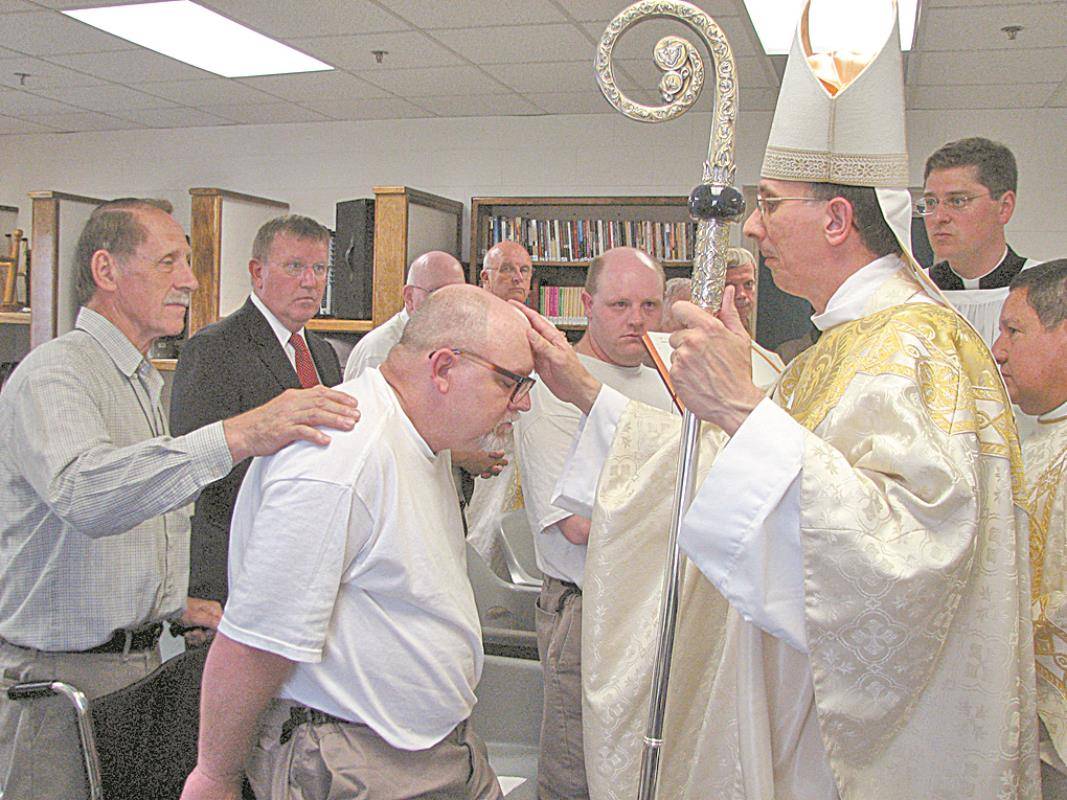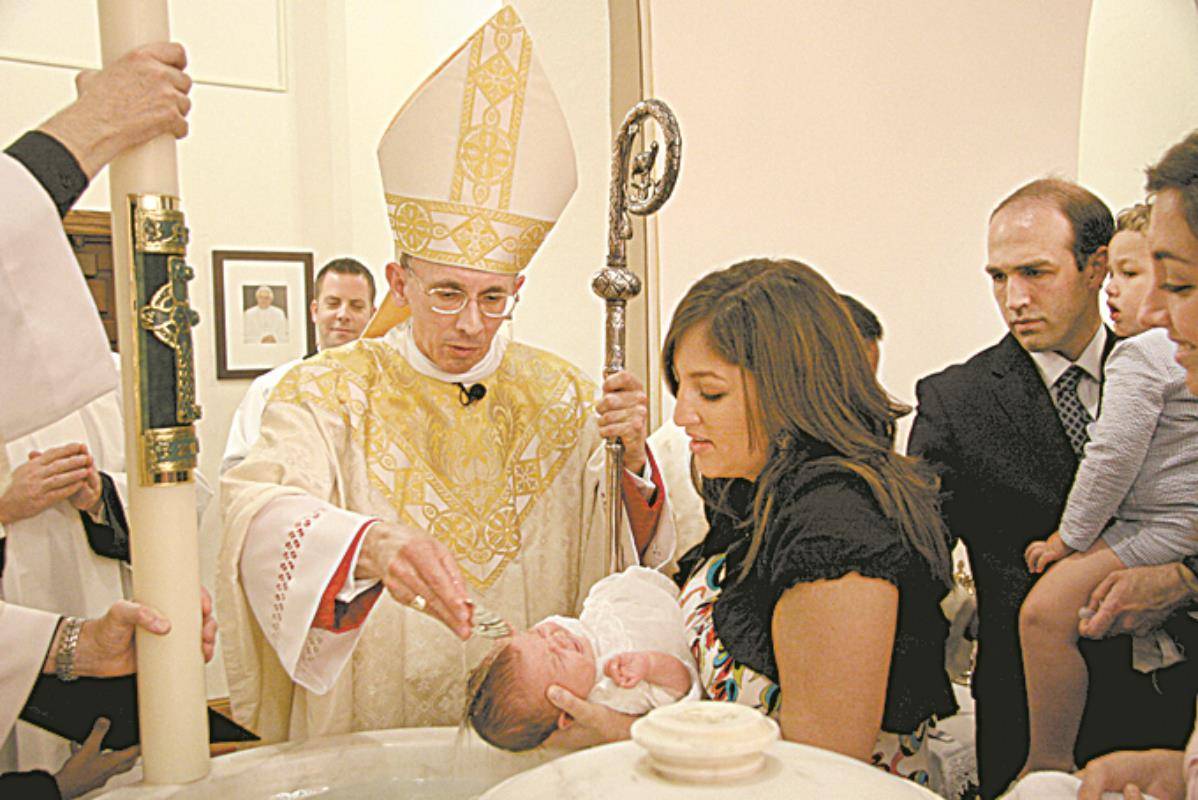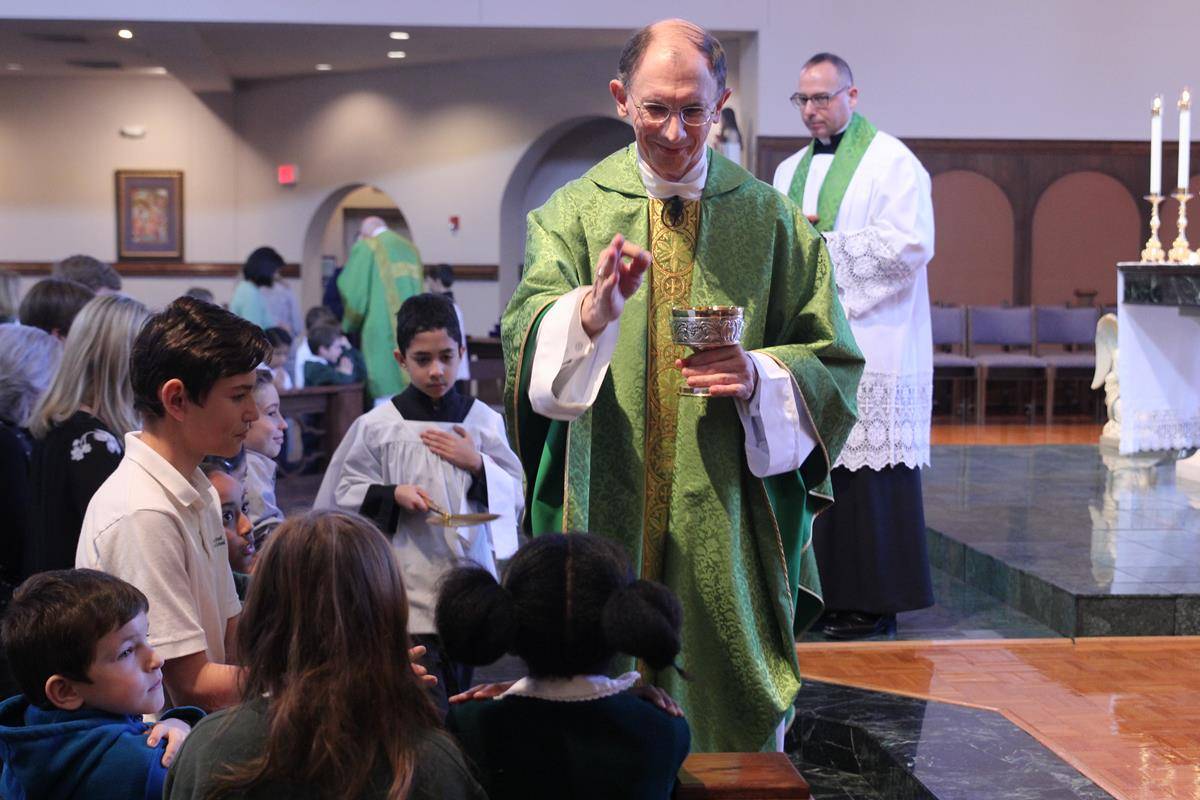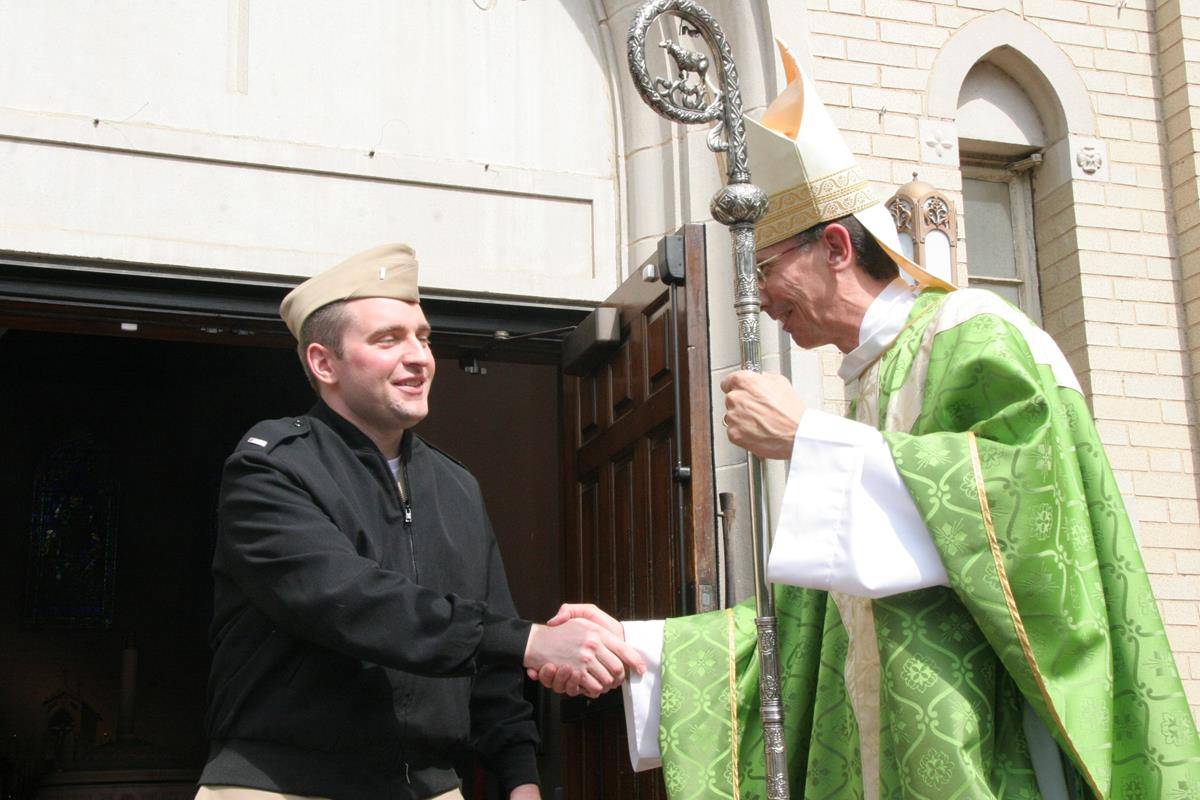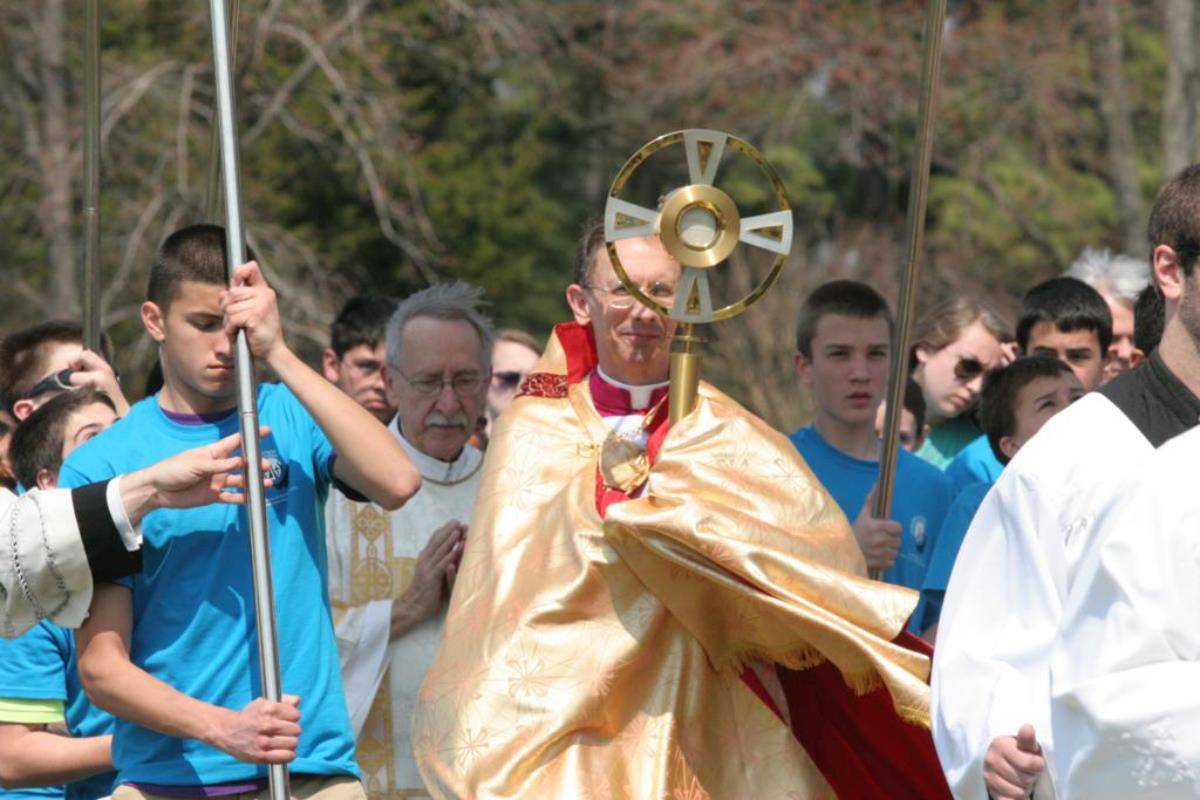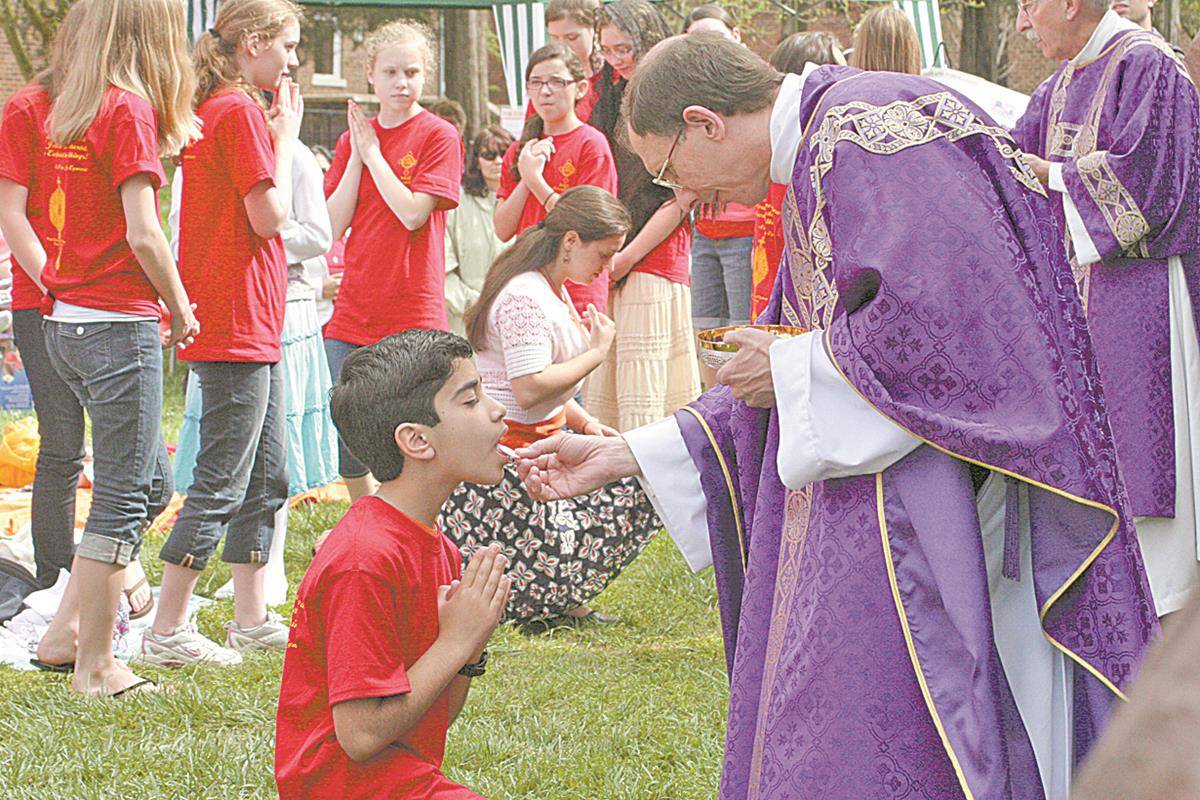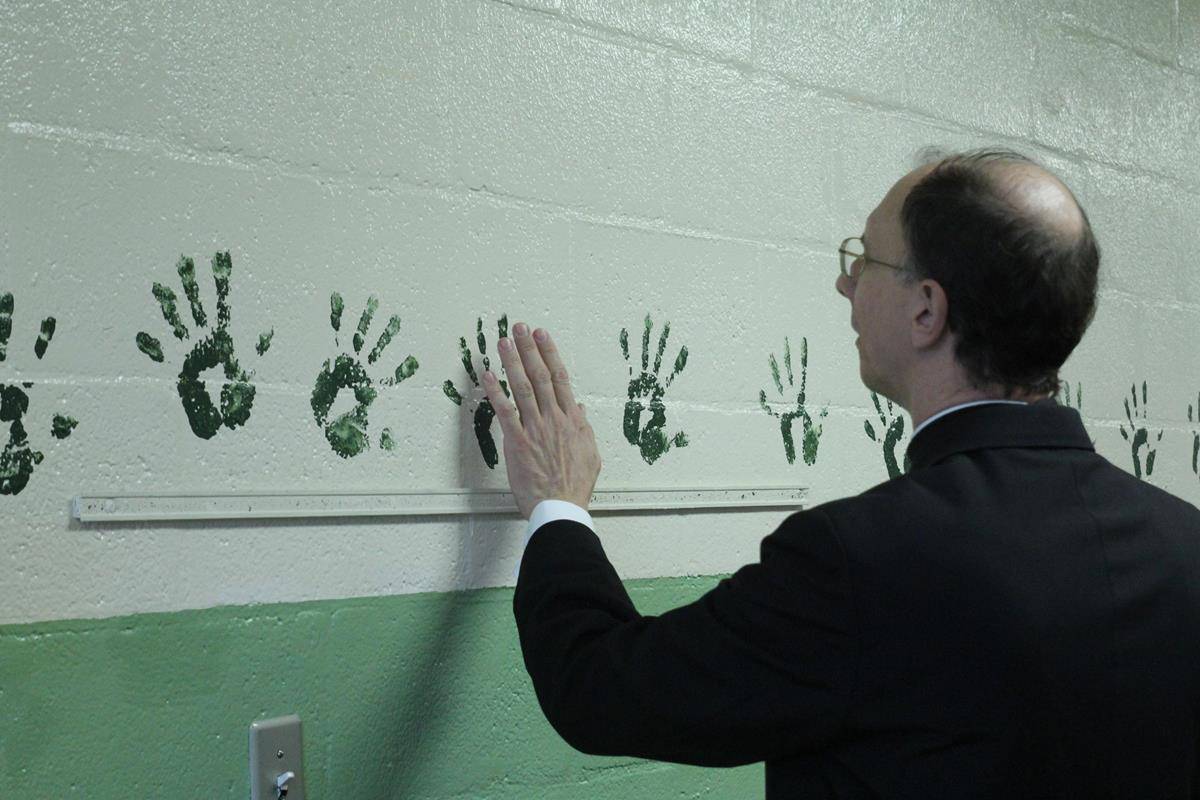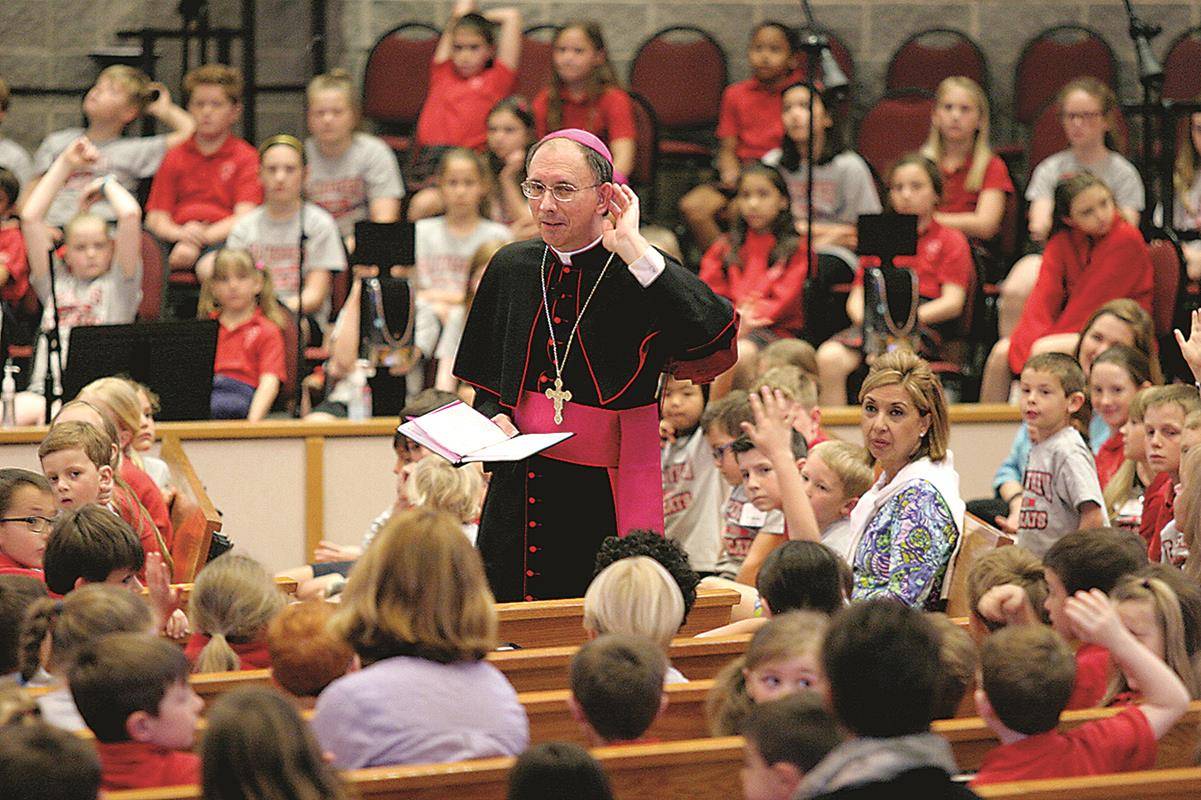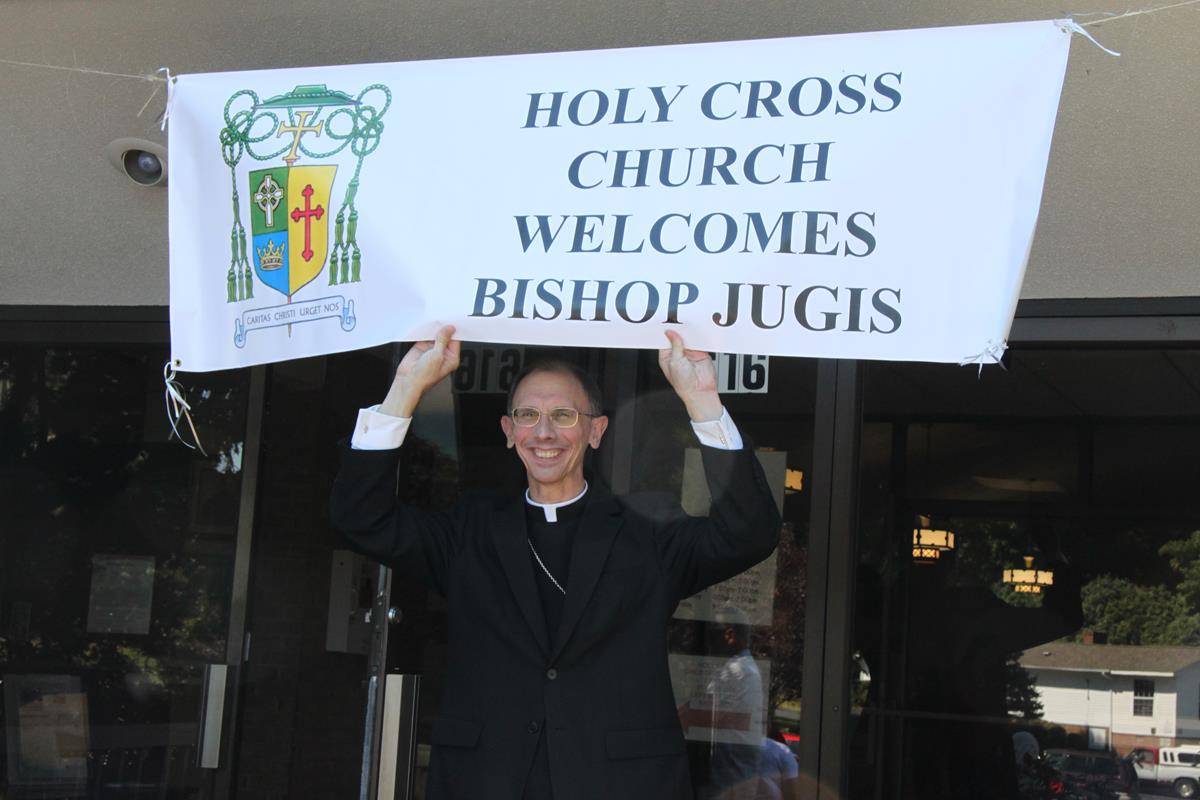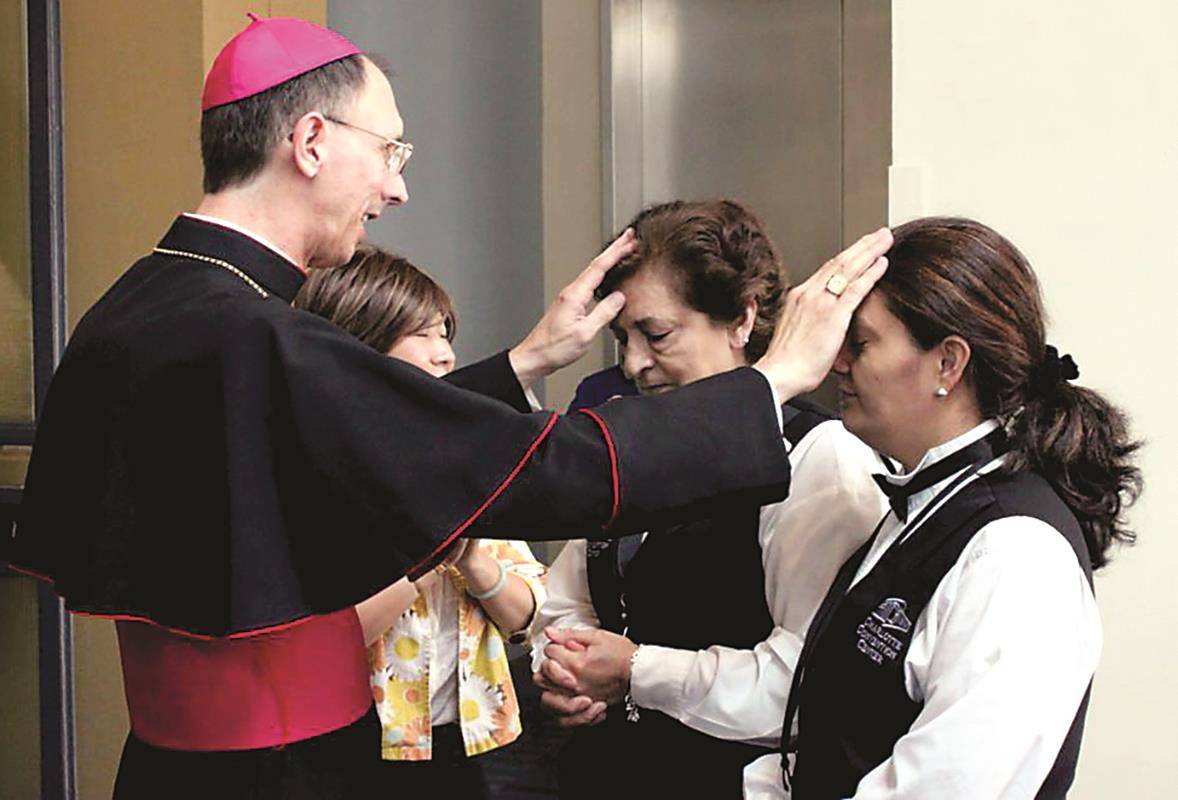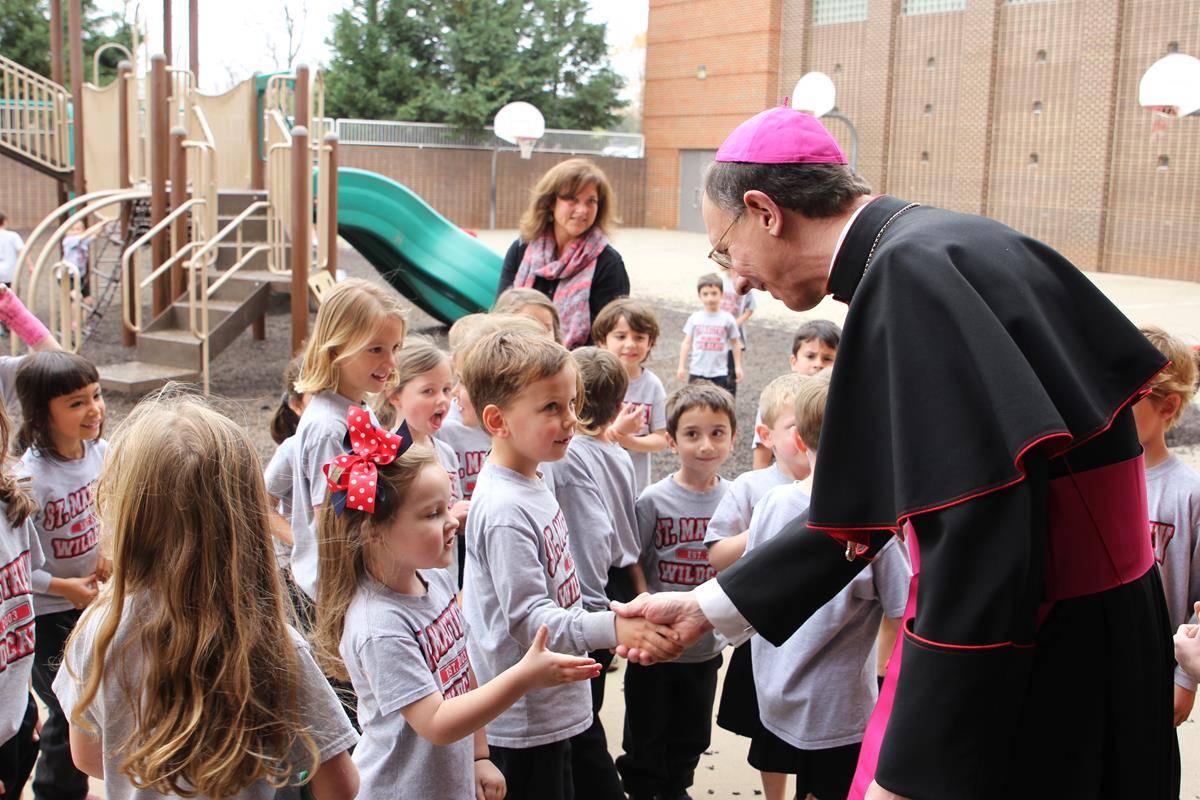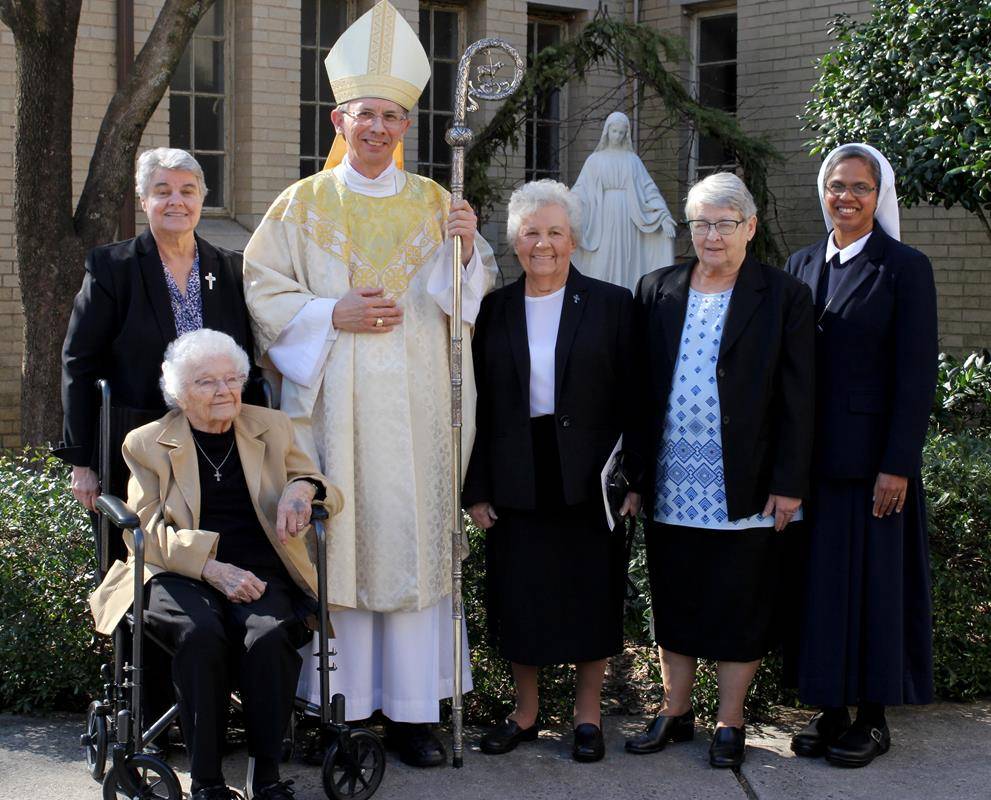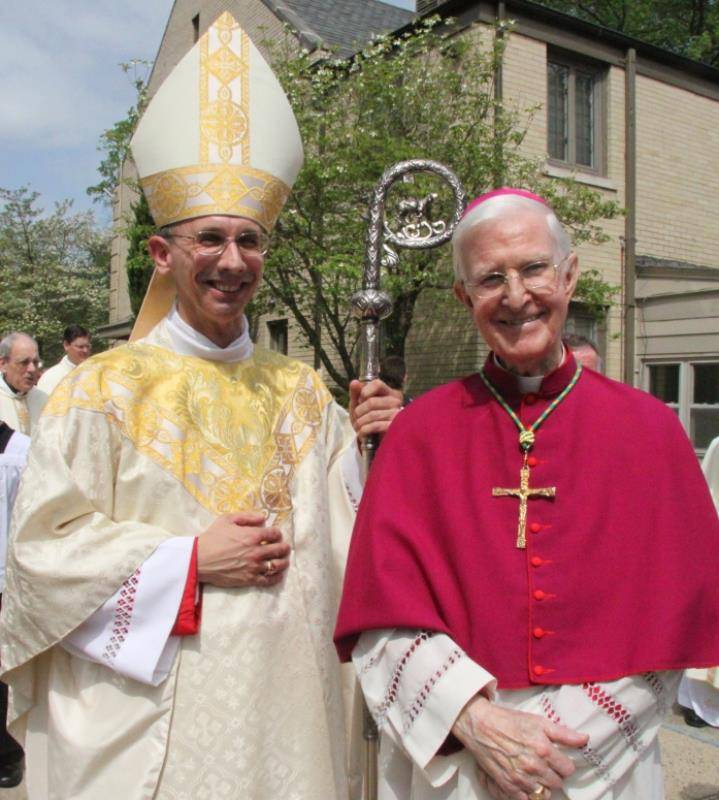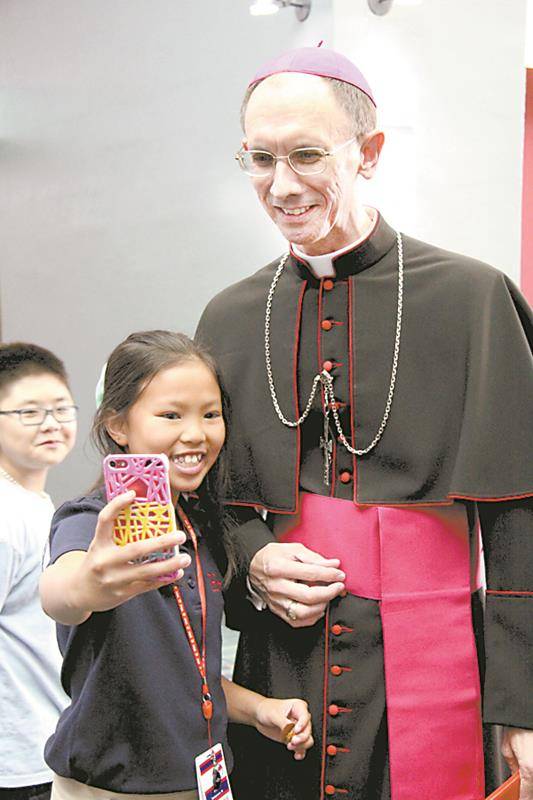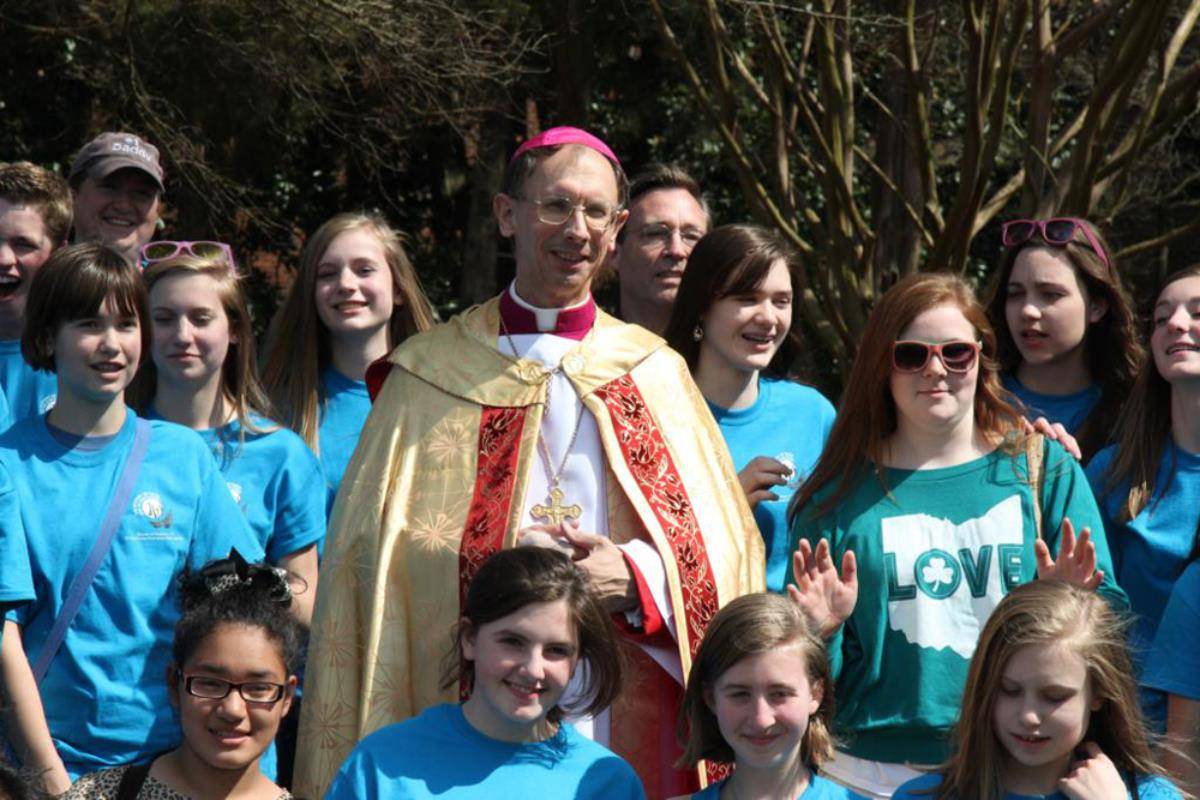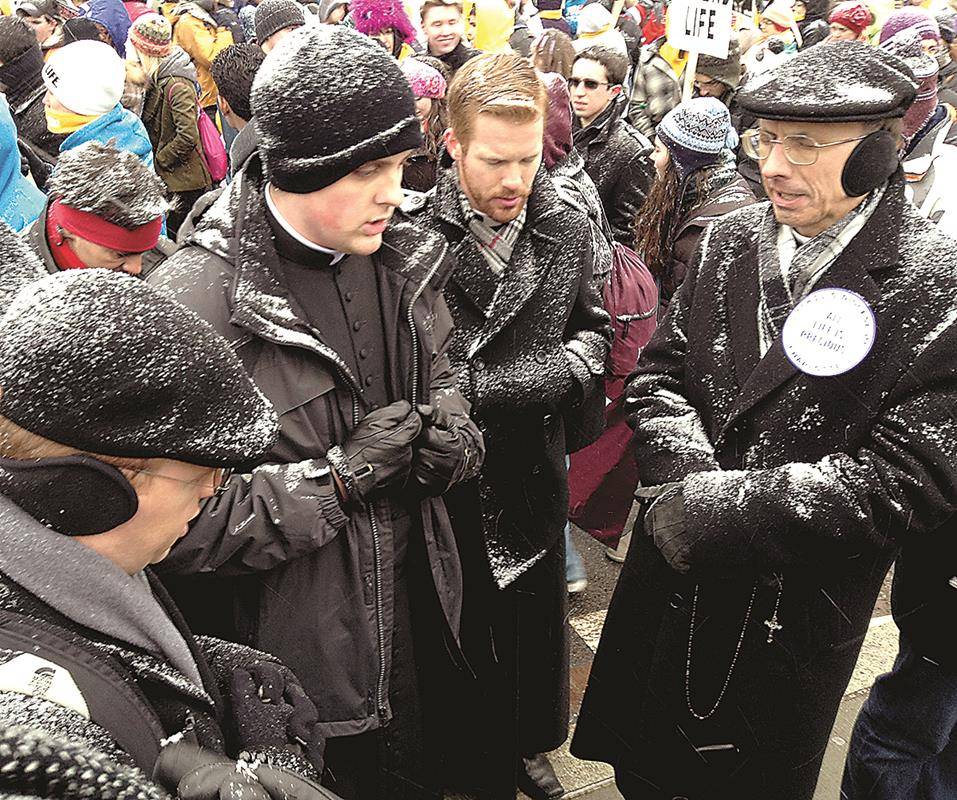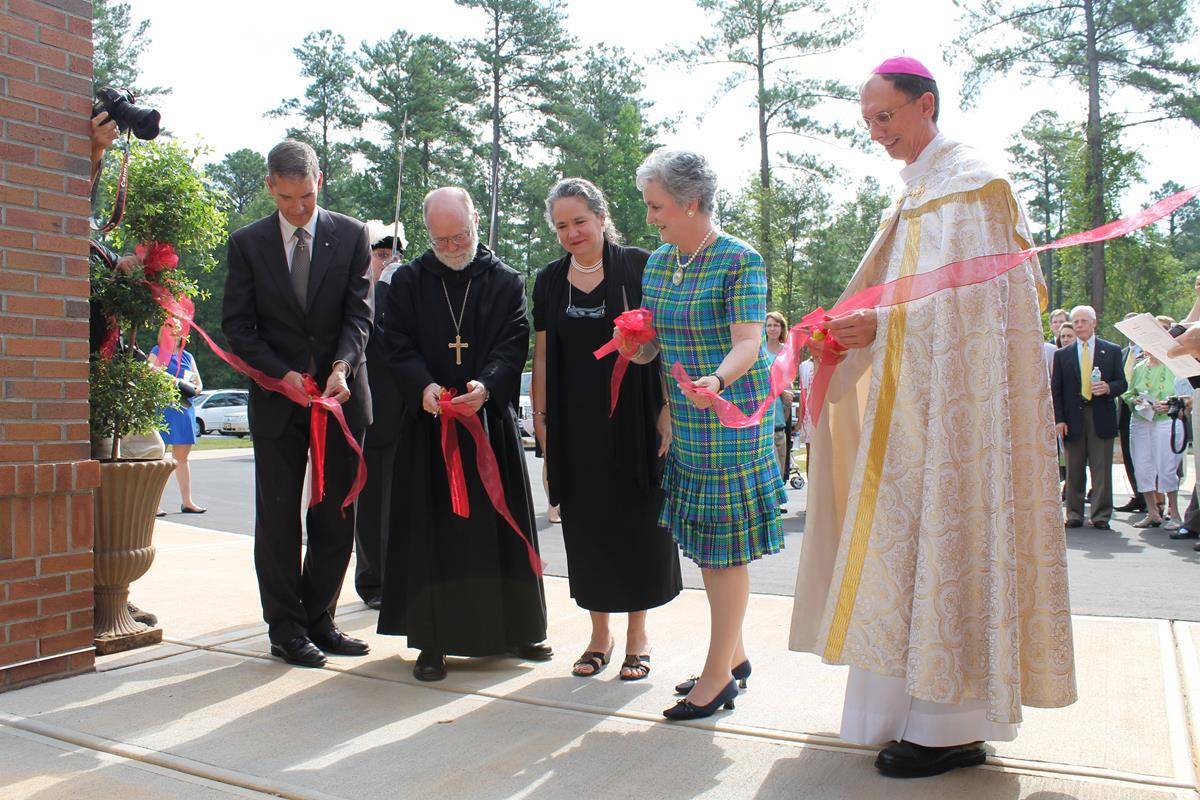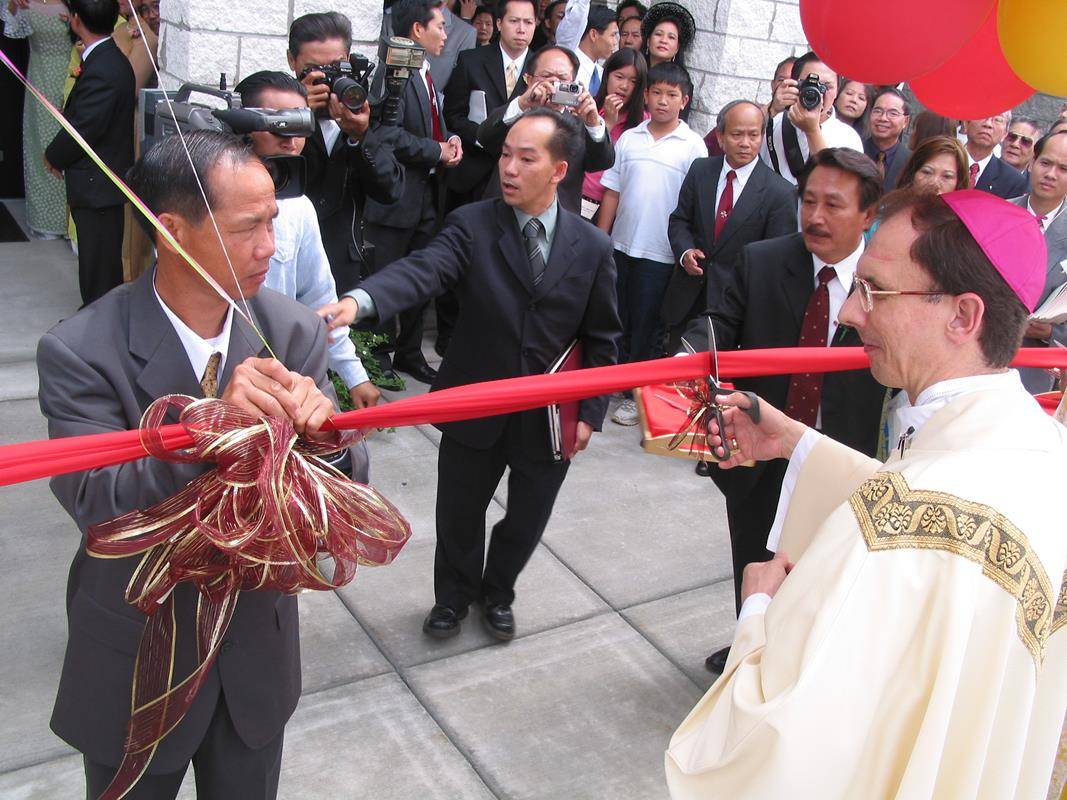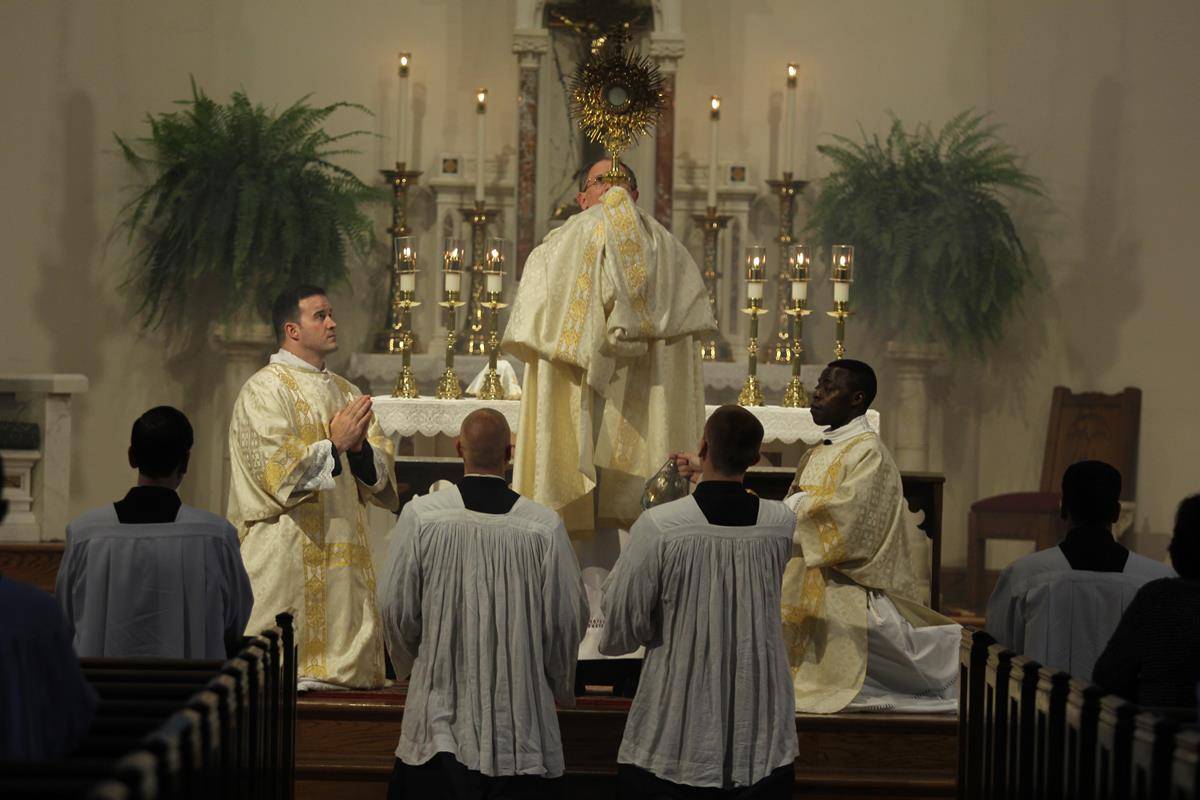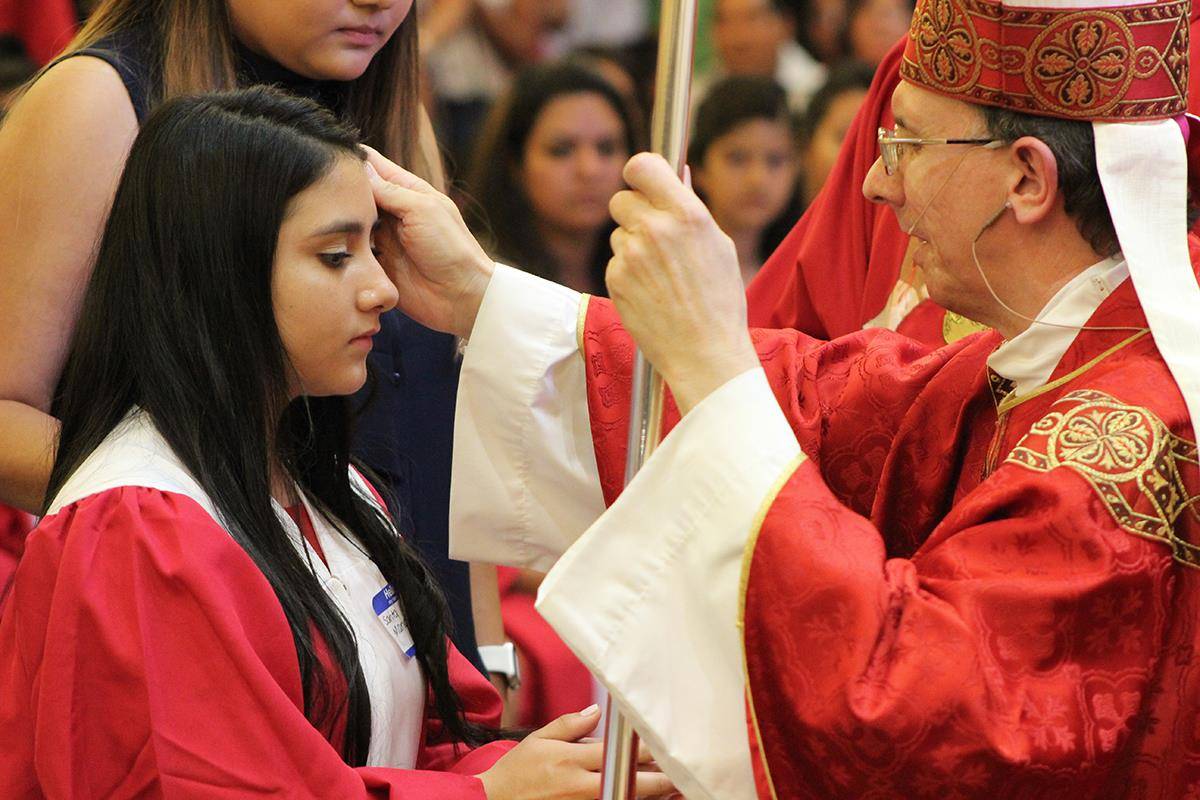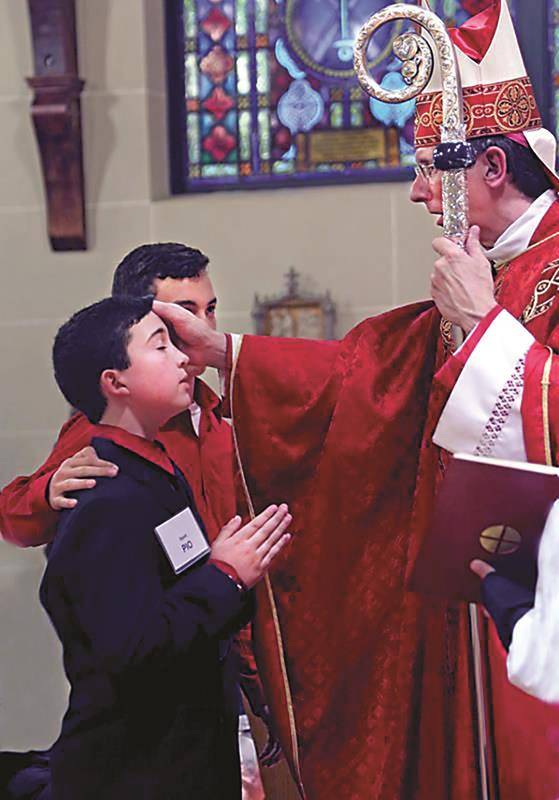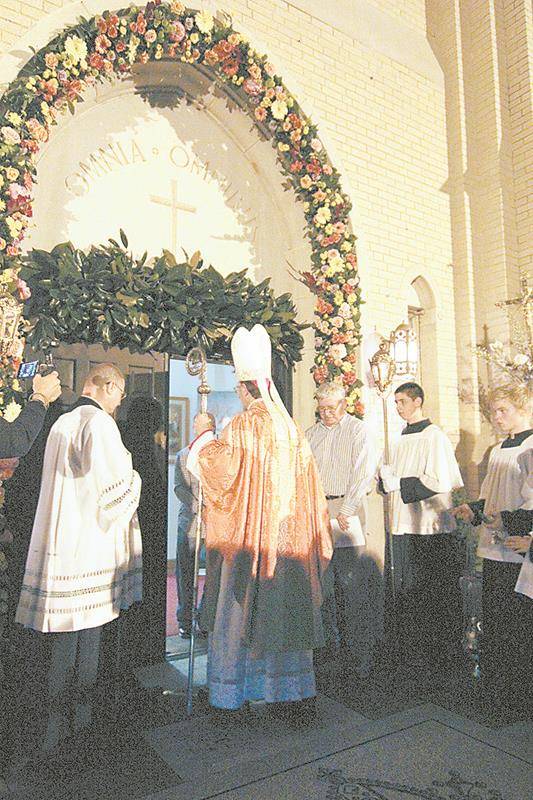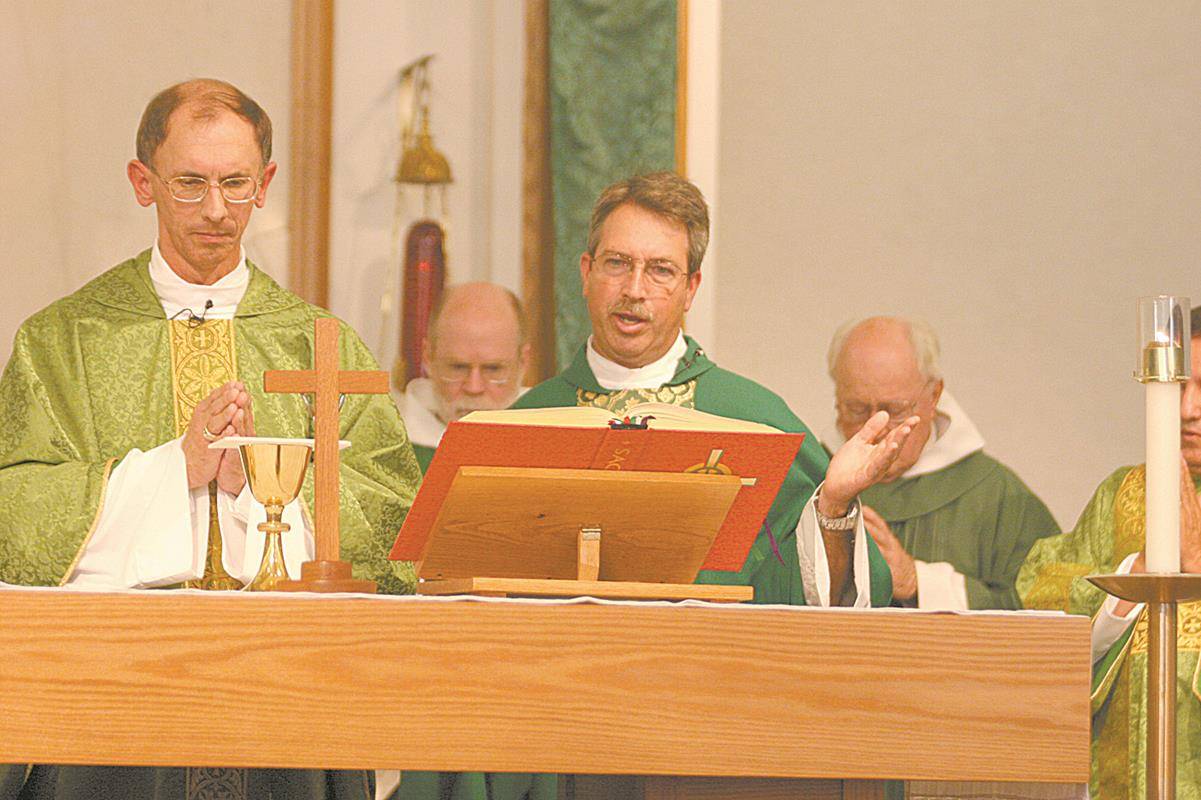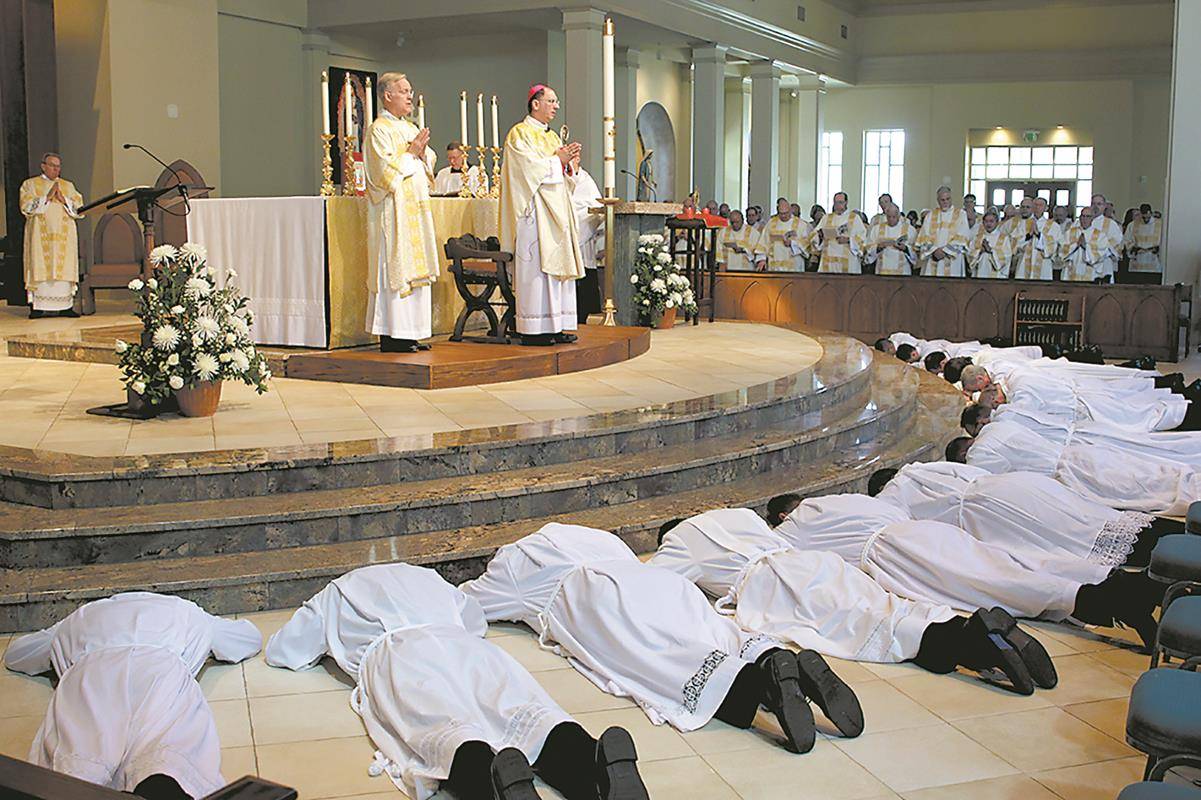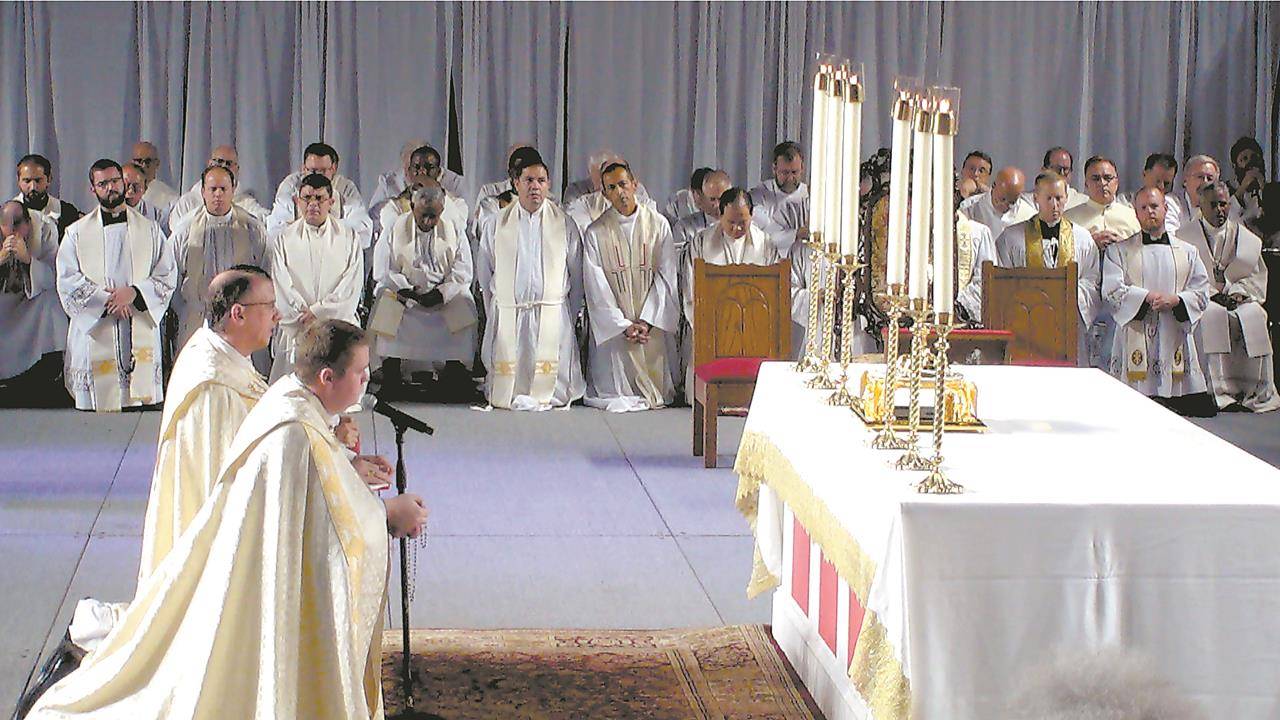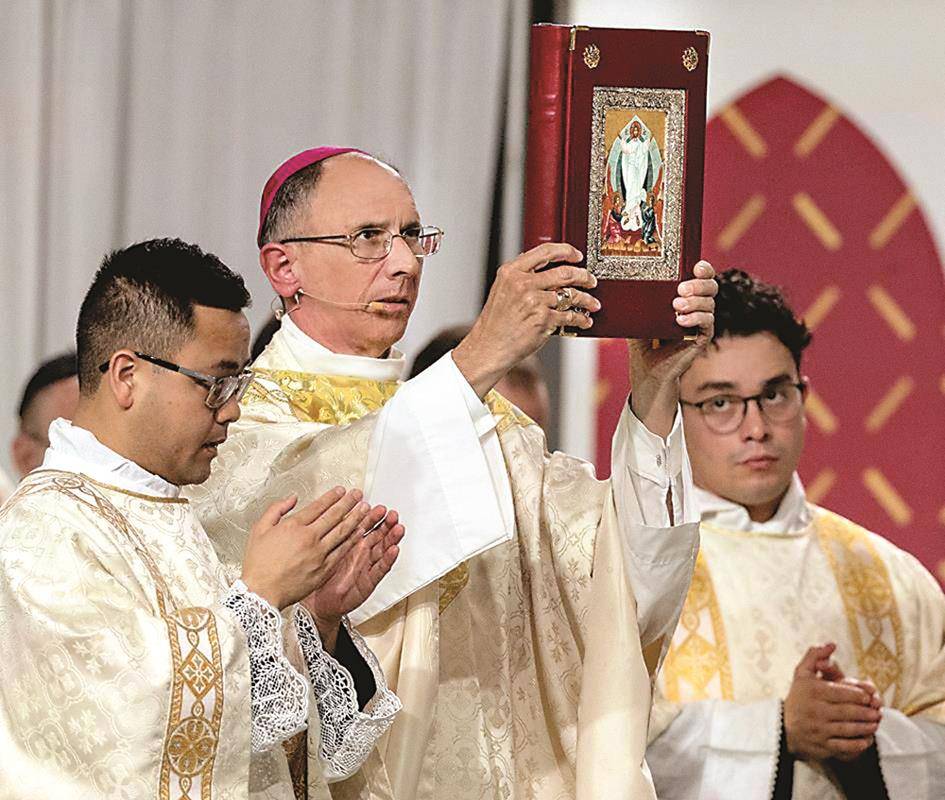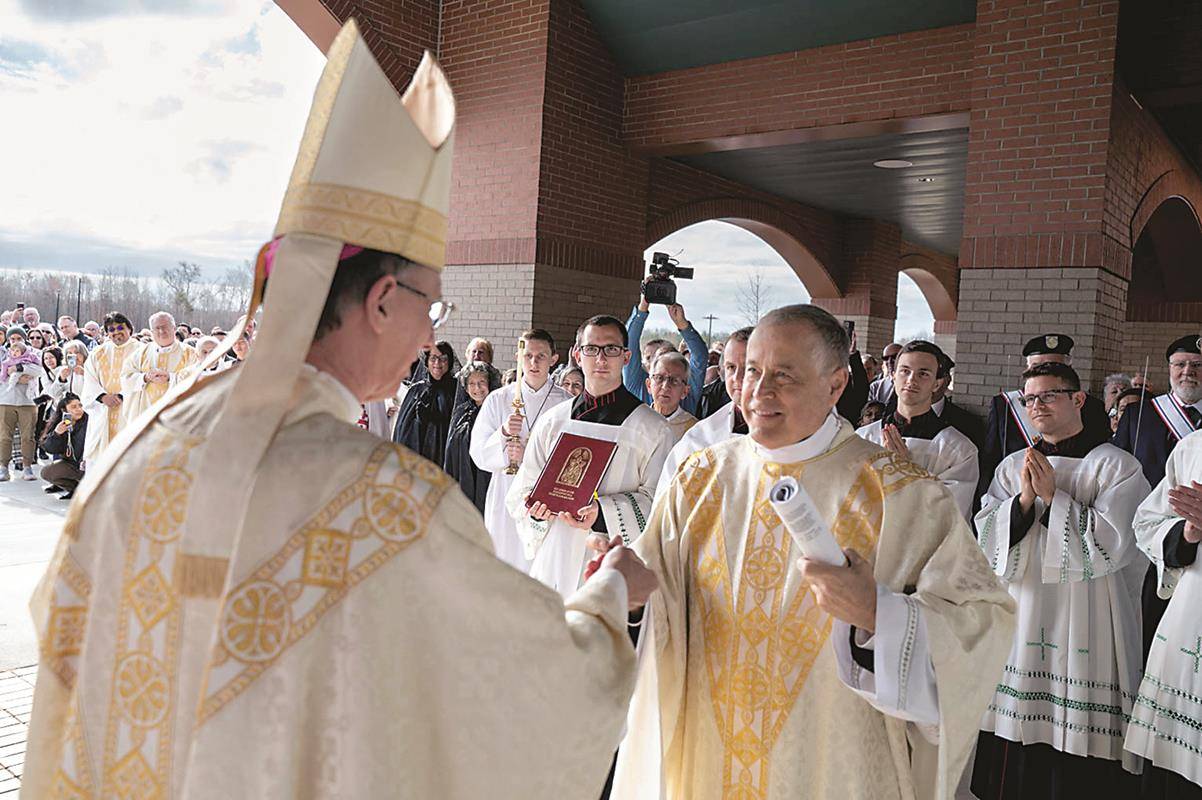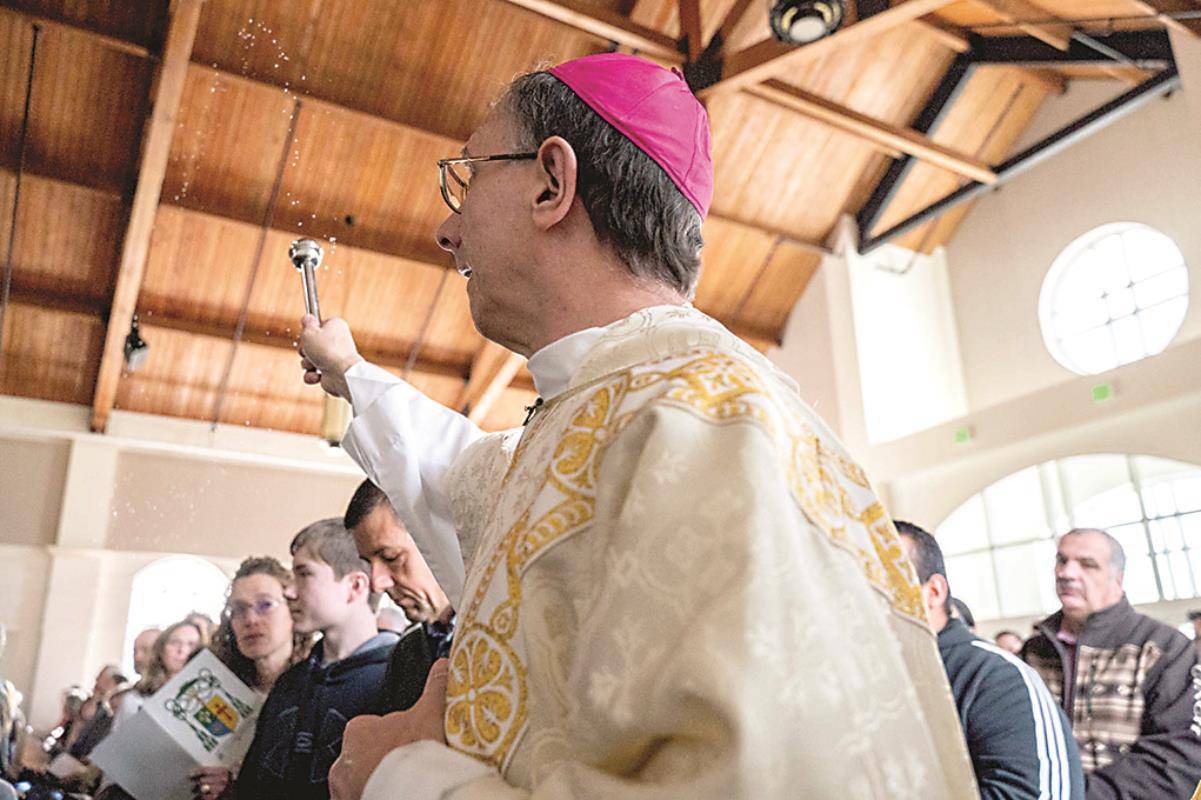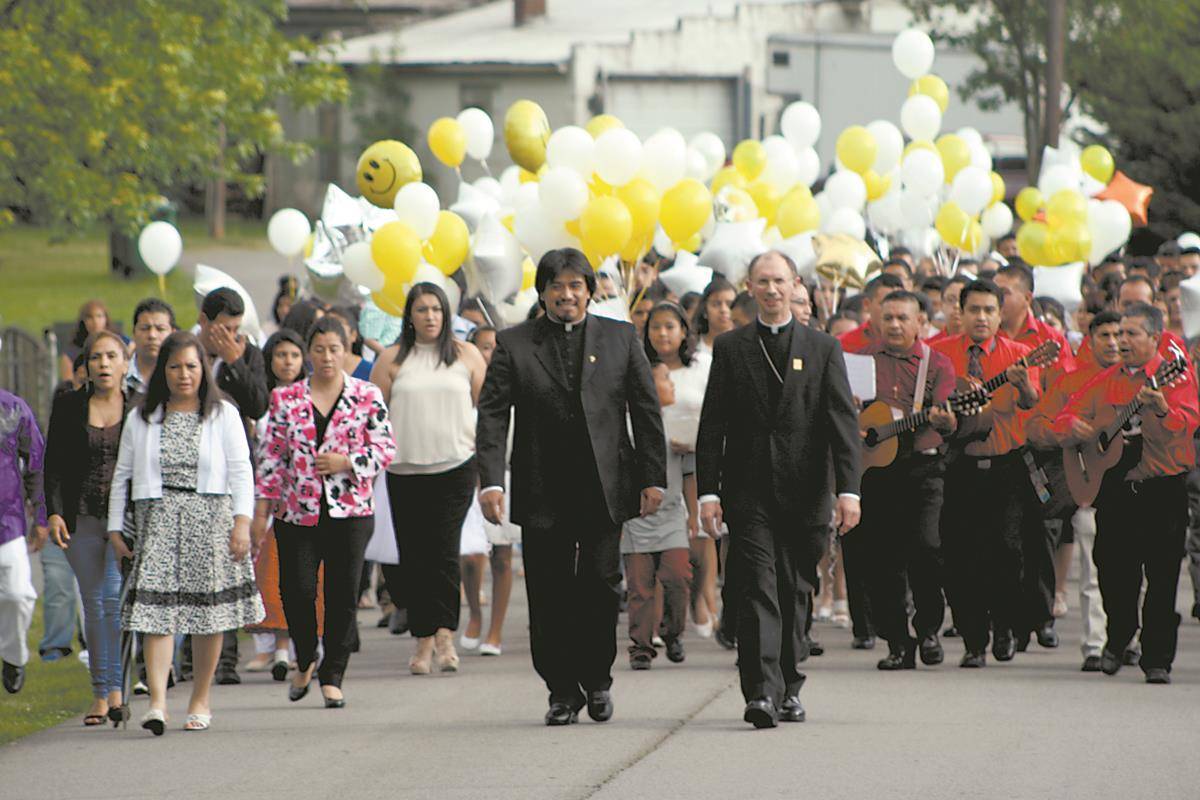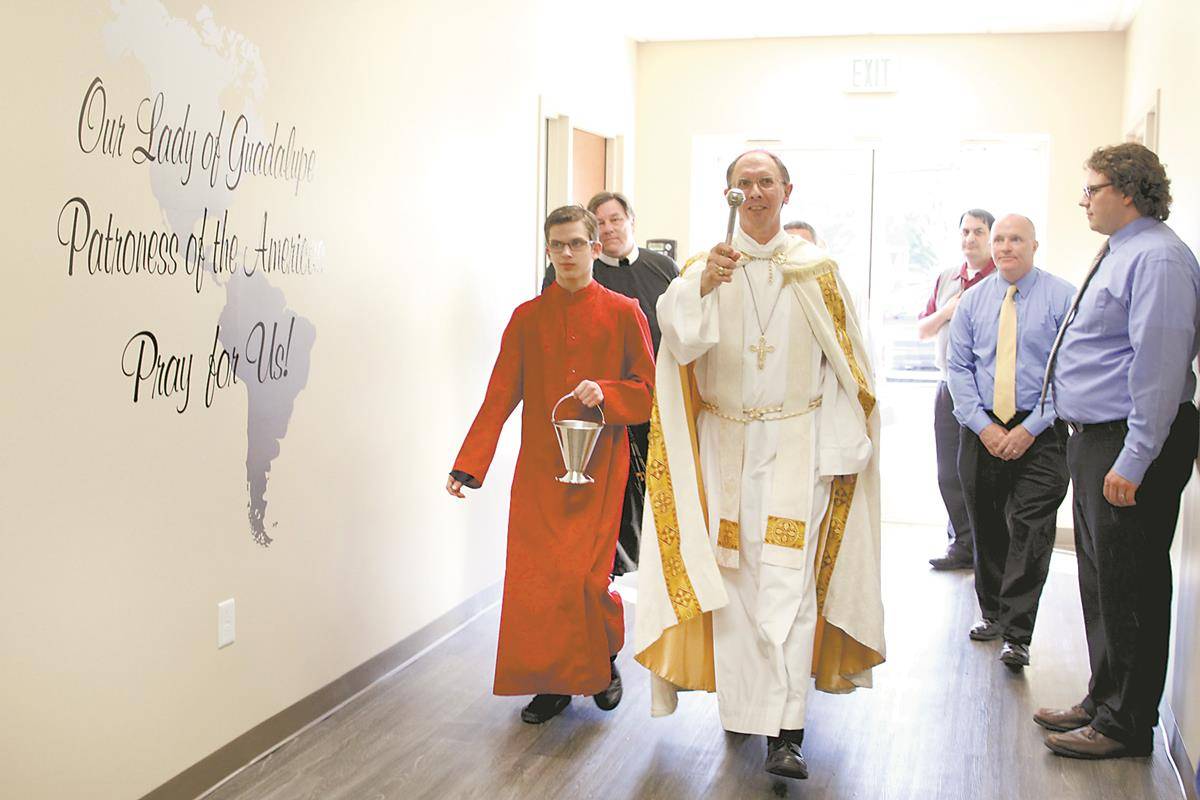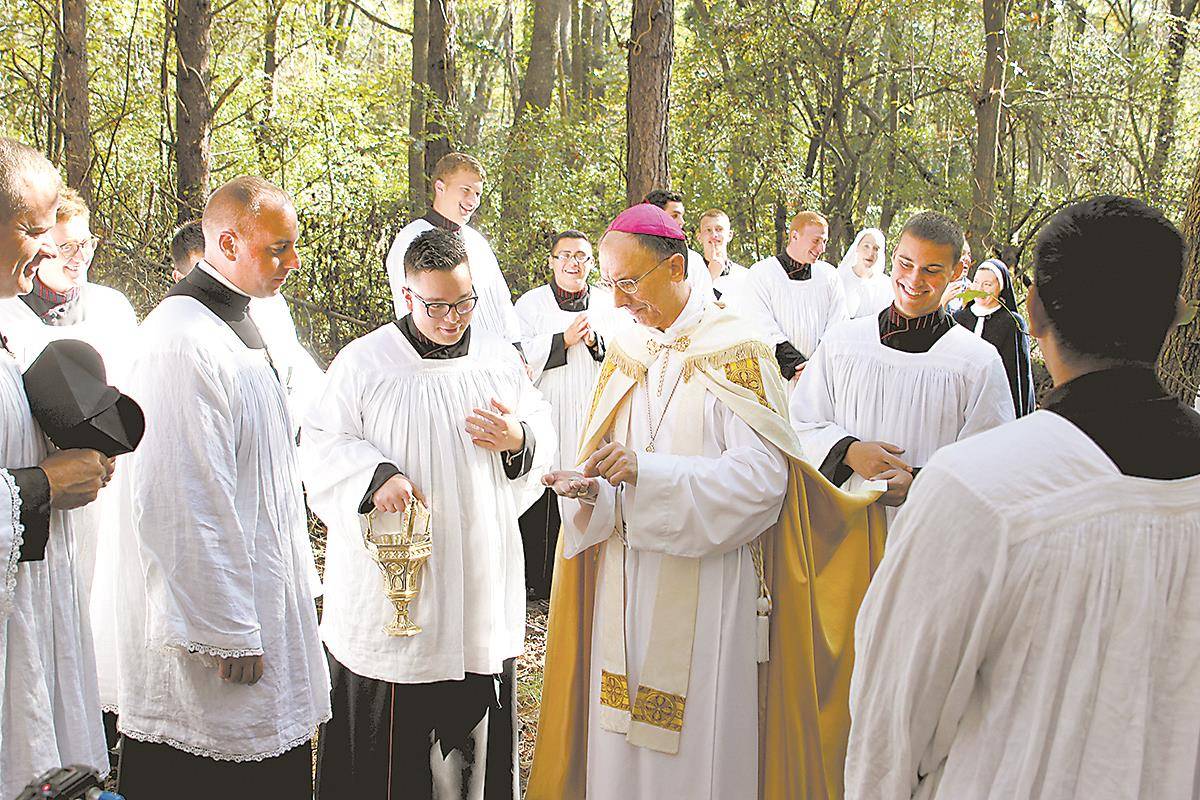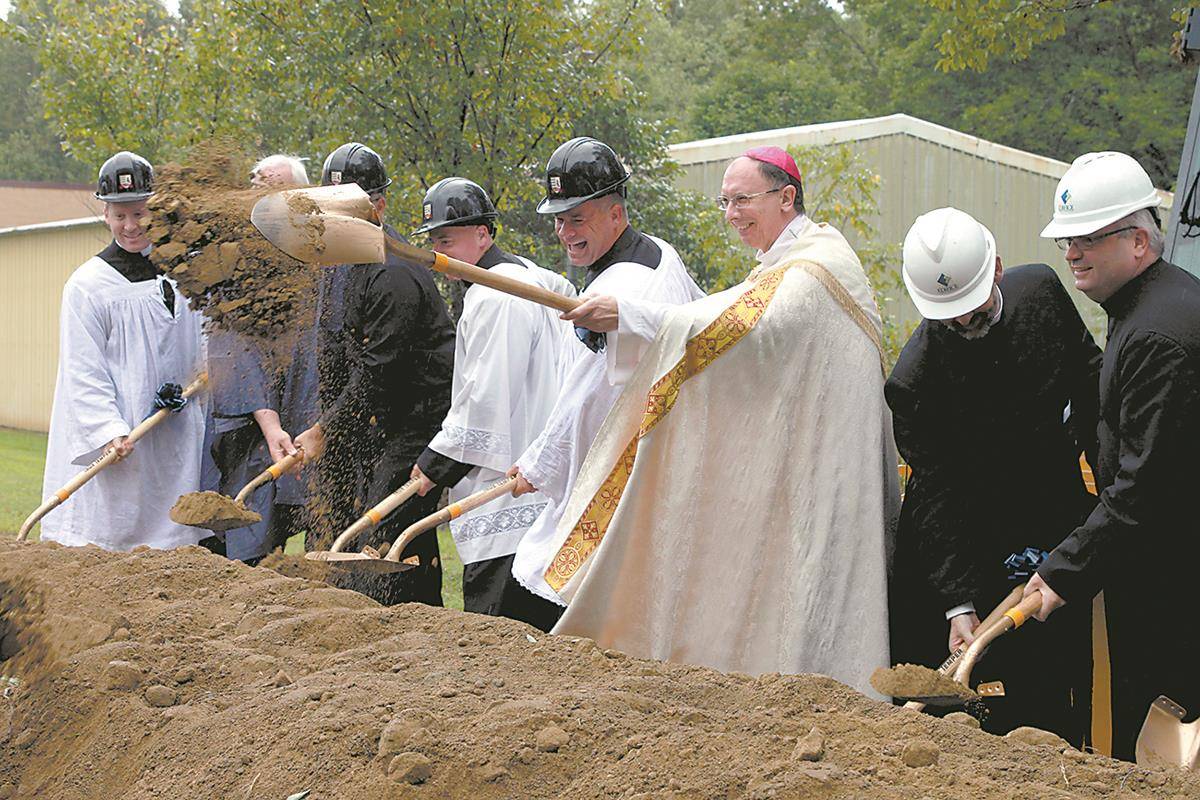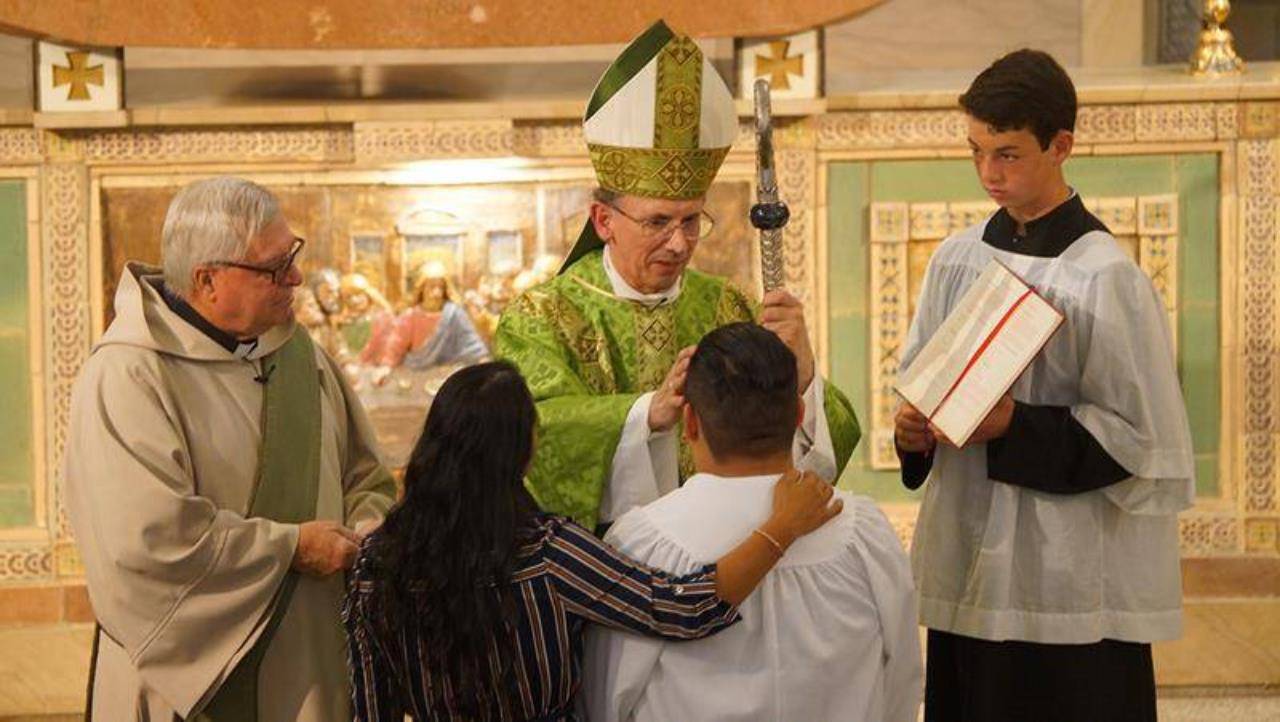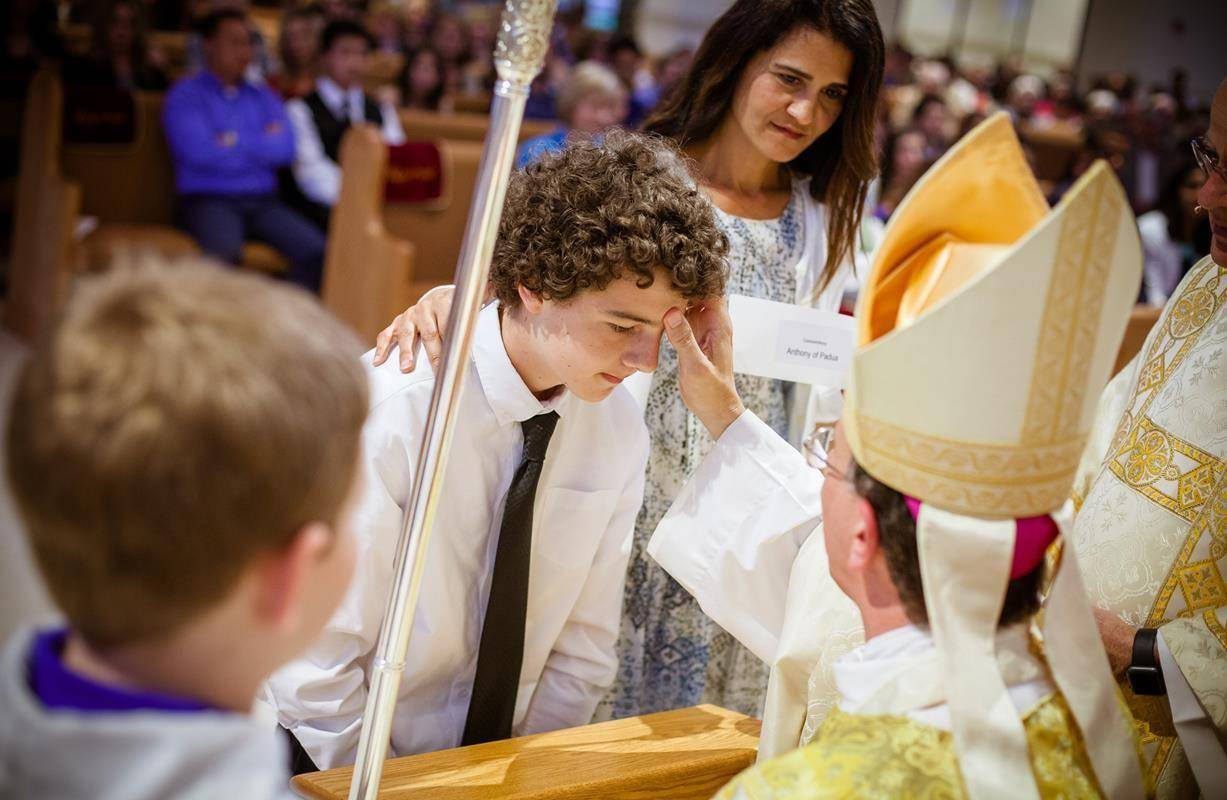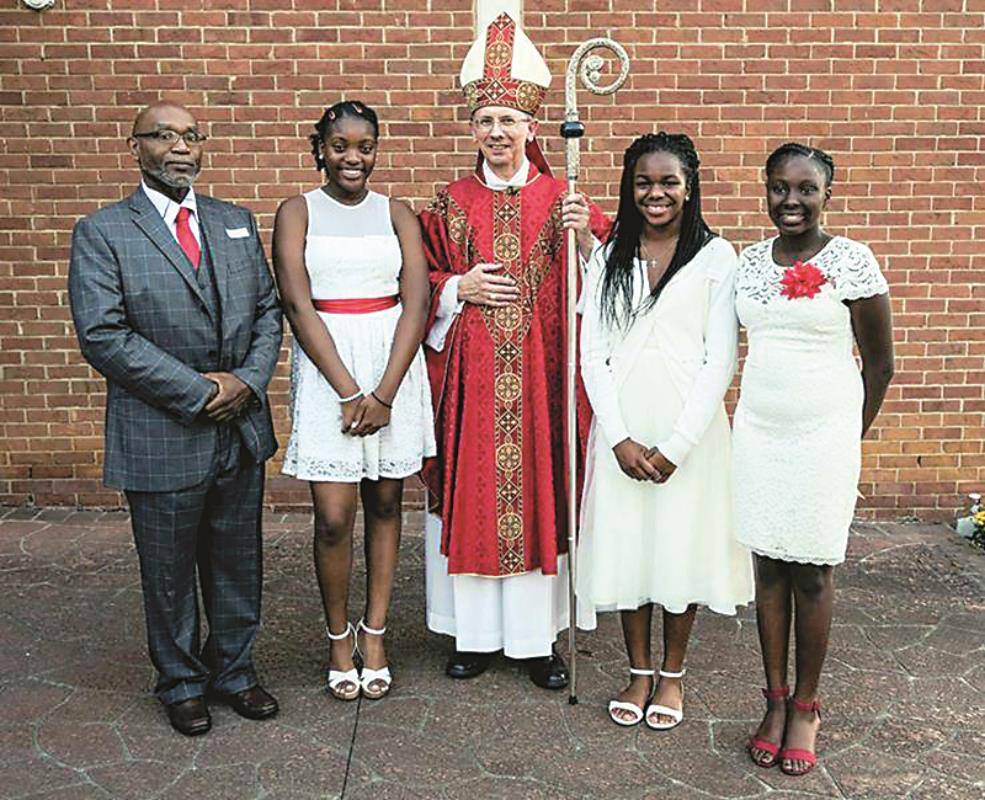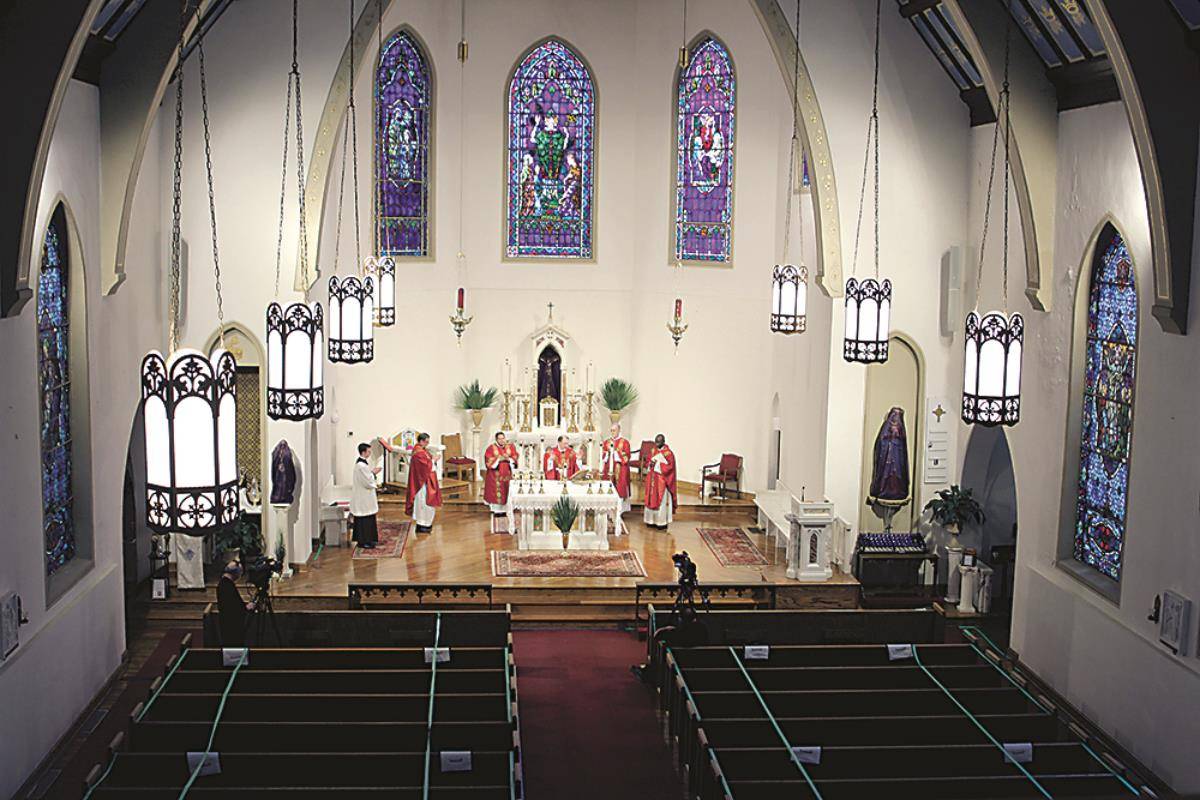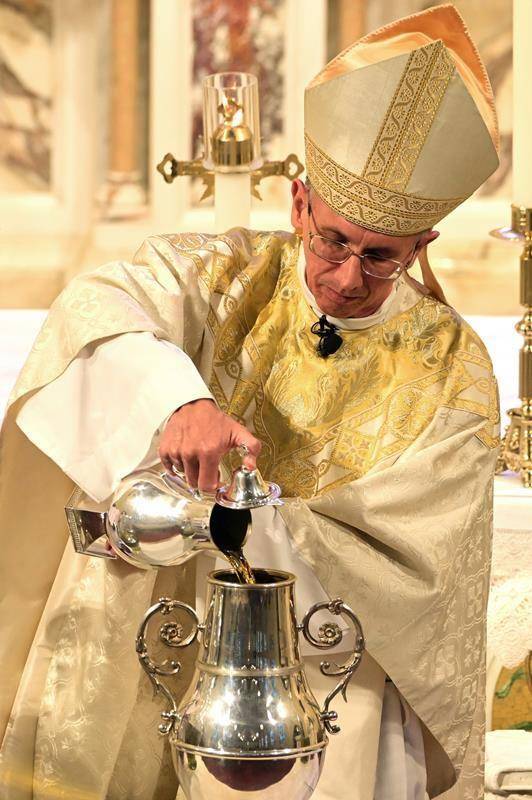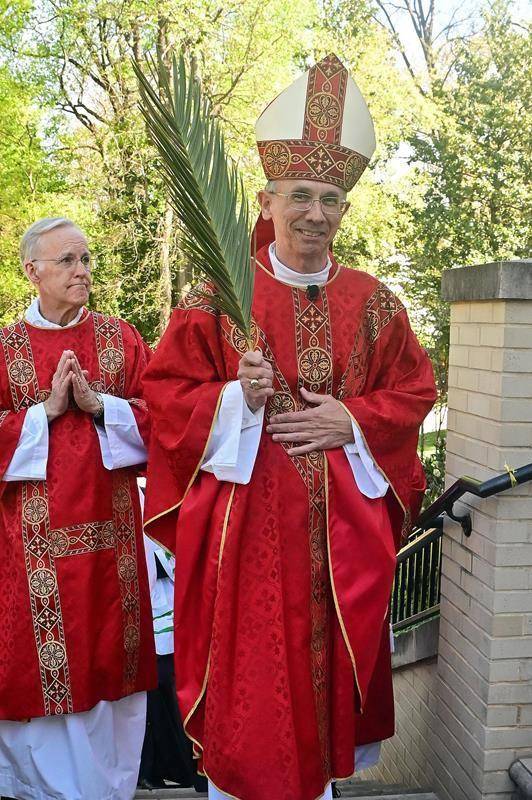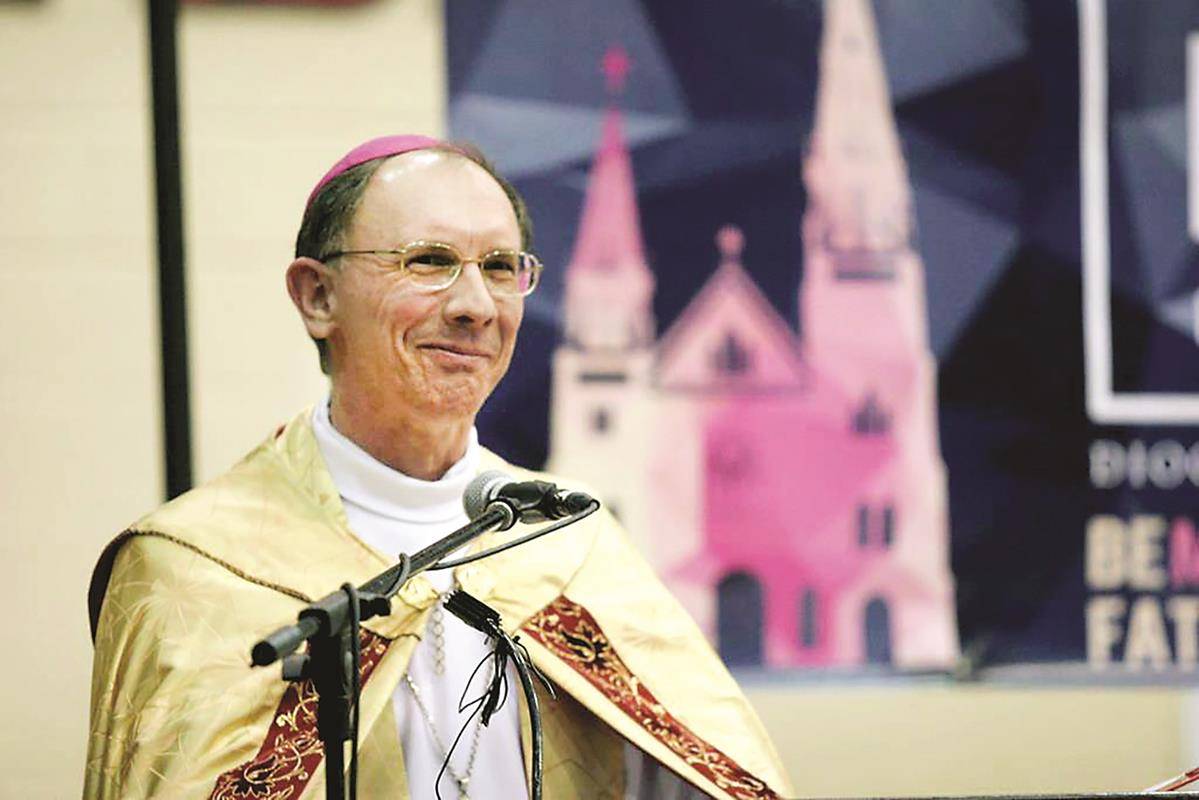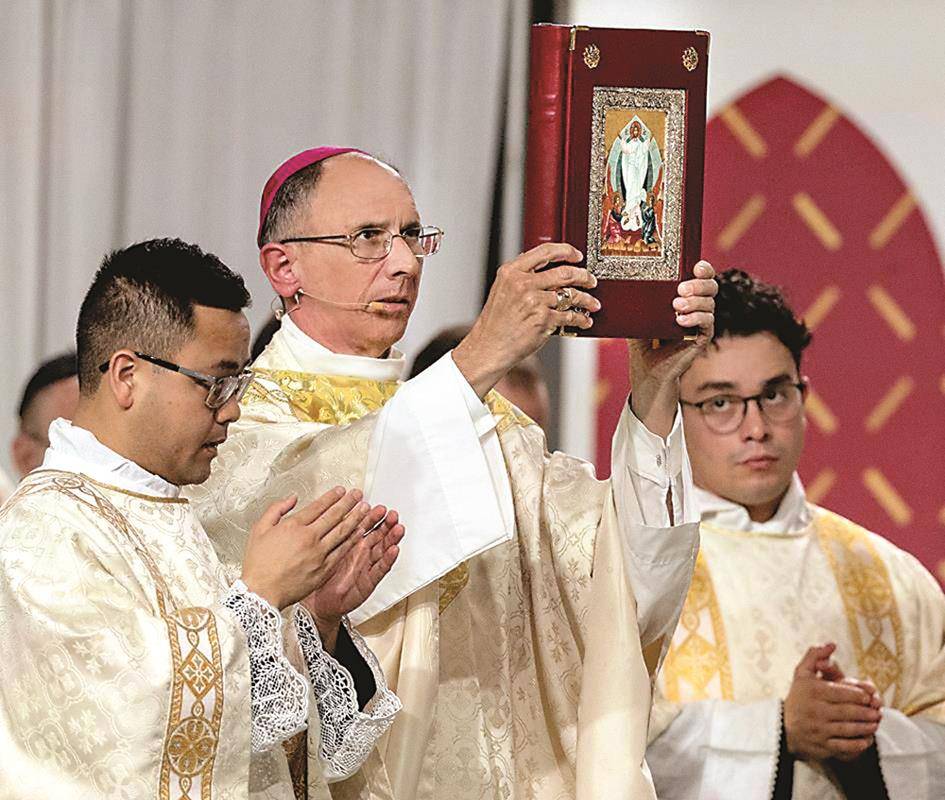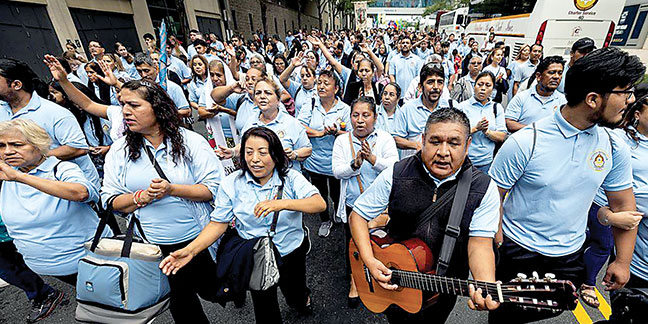 CHARLOTTE — In the 1990s, North Carolina began to receive its first major influx of Latino migrants, partly due to the booming textile industry at the time. With the fast-growing population, then-Bishop William Curlin established the first diocesan Hispanic Ministry. Today, the growth, development, expansion and strength of Hispanic Ministry is due to the strong spiritual guidance and support that Bishop Peter Jugis has devoted during his episcopacy.
CHARLOTTE — In the 1990s, North Carolina began to receive its first major influx of Latino migrants, partly due to the booming textile industry at the time. With the fast-growing population, then-Bishop William Curlin established the first diocesan Hispanic Ministry. Today, the growth, development, expansion and strength of Hispanic Ministry is due to the strong spiritual guidance and support that Bishop Peter Jugis has devoted during his episcopacy.
The early direction of Hispanic ministry in the diocese was led by Sister Pilar Dalmau, followed by Father Vincent Finnerty. In 2002, a year before Bishop Jugis’ appointment as bishop of the Diocese of Charlotte, Sister Andrea Inkrott assumed the leadership of the ministry. At that time, then-Father Jugis was serving as pastor of Our Lady of Lourdes Parish in Monroe, giving special attention to the rapidly growing Latino community. Parishioner Rosa Elba Gutiérrez said she witnessed that he did everything possible to serve all communities as pastor.
“He doesn’t like to attract attention, he does everything with a quiet humility,” she said. “In Monroe he established English and catechism classes for the Hispanic population.
We were delighted with the commitment and attention he gave us. He is very attentive to Hispanics, and he knew how to organize the community and prepare us for service to others.”
PLAN AND PROGRESS
In 2009, reiterating his commitment to the Latino community, Bishop Jugis released a long-term Pastoral Plan for Hispanic Ministry in the diocese – a document that even 14 years later serves as a strong foundation for the mission of the entire ministry.
The plan, based on a 2002 U.S. Conference of Catholic Bishops publication, “Encounter and Mission: A renewed pastoral framework for the Hispanic Ministry,” recognized the increasing presence of Hispanics in the Church.
In the introductory prologue, Bishop Jugis said he was happy to present the pastoral plan, “which will help to guide our growth in Christ as a diocesan family over the next three years,” through evangelization, service and leadership role development among Hispanic Catholics.
Deacon Eduardo Bernal highlighted that when Bishop Jugis instituted the Eucharistic Congress in 2005, it became “an important meeting point for the Latino community, and we are strengthened in it.”
“Bishop Jugis has been able to interpret the changing times and has facilitated the presence and expression of the different communities of Catholics throughout the diocese,” Deacon Bernal added.
In 2010, Bishop Jugis established the role of Episcopal Vicar for Hispanic Ministry and appointed Father Fidel Melo to the position. By then, the diocese already had nearly doubled its population of Hispanic Catholics.
Father Melo said the bishop’s pastoral plan would facilitate “the complete incorporation of Hispanics into the life of the Church and its mission, to be evangelizing missionaries for the Church and society, without distinction of race, culture or language.”
Hispanic ministry, Father Melo noted, is more than just about providing Spanish-language services and sacraments. “It is to emphasize the cultural language, familiarizing the laity with the faith and incorporating people from different backgrounds. Our mission is to bring people closer to God,” he said.
In 2020, Bishop Jugis appointed Father Julio César Domínguez to succeed Father Melo as Episcopal Vicar of Hispanic Ministry, a position he still holds.
Now, the number of Hispanic Catholics in the diocese makes up approximately half the total Catholic population in the diocese. In addition, two-thirds of the diocese’s 92 parishes offer Spanish or bilingual Masses.
UNCONDITIONAL SUPPORT
Today, thanks to the planning of Bishop Jugis and his unconditional support for the Latino community, Hispanic Ministry in the diocese is an example of unique development at the national level. The ministry now has the position of episcopal vicar and an assistant to the vicar – plus 10 coordinators of Hispanic ministry, one for each vicariate of the diocese, as staff on the payroll.
Bishop Jugis is also a member of the board of directors of the Southeast Pastoral Institute (SEPI), which offers evangelization, catechetical and leadership courses for coordinators and lay people engaged in pastoral work.
In 2016, with the goal of increasing priestly vocations among the youth of the diocese, Bishop Jugis created St. Joseph College Seminary in Mount Holly, where men discern a call to the priesthood while pursuing undergraduate studies in philosophy at Belmont Abbey College. By establishing a seminary in the diocese, the faithful have the chance to encounter and support vocations in a deeper and closer way. Bishop Jugis requires all seminarians to take Spanish courses and conclude their studies with an advanced knowledge of the language.
Father Dominguez said that since our bishop came to the diocese, “the two things I have seen in him that have particularly impacted me and made me grow as a priest are, first, his love for the Eucharist. We see this very clearly with the institution of the annual Eucharistic Congress and the dedication of several Adoration chapels in parishes as a fruit of this diocesan effort. The second is the promotion of vocations. When I was pastor at St. Francis of Assisi Parish, I marveled at how the bishop identified with the young people and gave them a rosary to pray for their vocation. This manner of calling was surprising to the young people, because, although not everyone entered the seminary, at least it made them aware of God’s call in their lives.”
Father Dominguez also highlighted Bishop Jugis’ commitment to Hispanic Ministry. “He has always been present and supported the evangelization and formation programs that we have brought to him as a team. For this, and many other things, we are very happy that he is the spiritual guide of our diocese.”
— César Hurtado
Diocese marks Bishop Peter Jugis’ 20th anniversary:
- Amid booming growth, diocese marks Bishop Jugis’ 20th anniversary
- Bishop Jugis calls faithful to unity in the Real Presence
- A Story of Growth: A timeline
- Bishop Jugis’ pilgrimages to the Vatican
- Fourth Bishop of Charlotte: A native Charlottean, ordained by John Paul II
- Looking back: Ordination Day 2003



